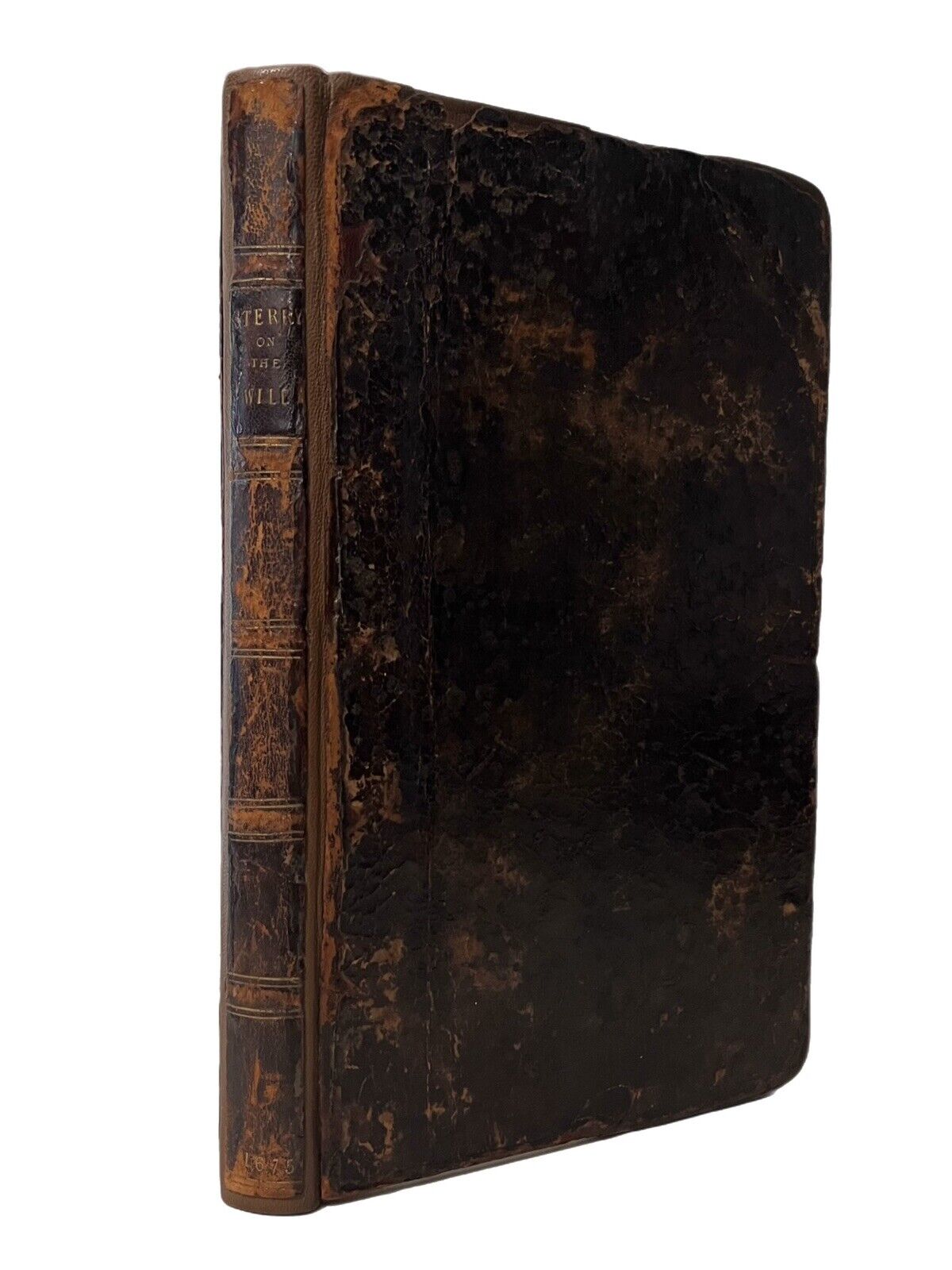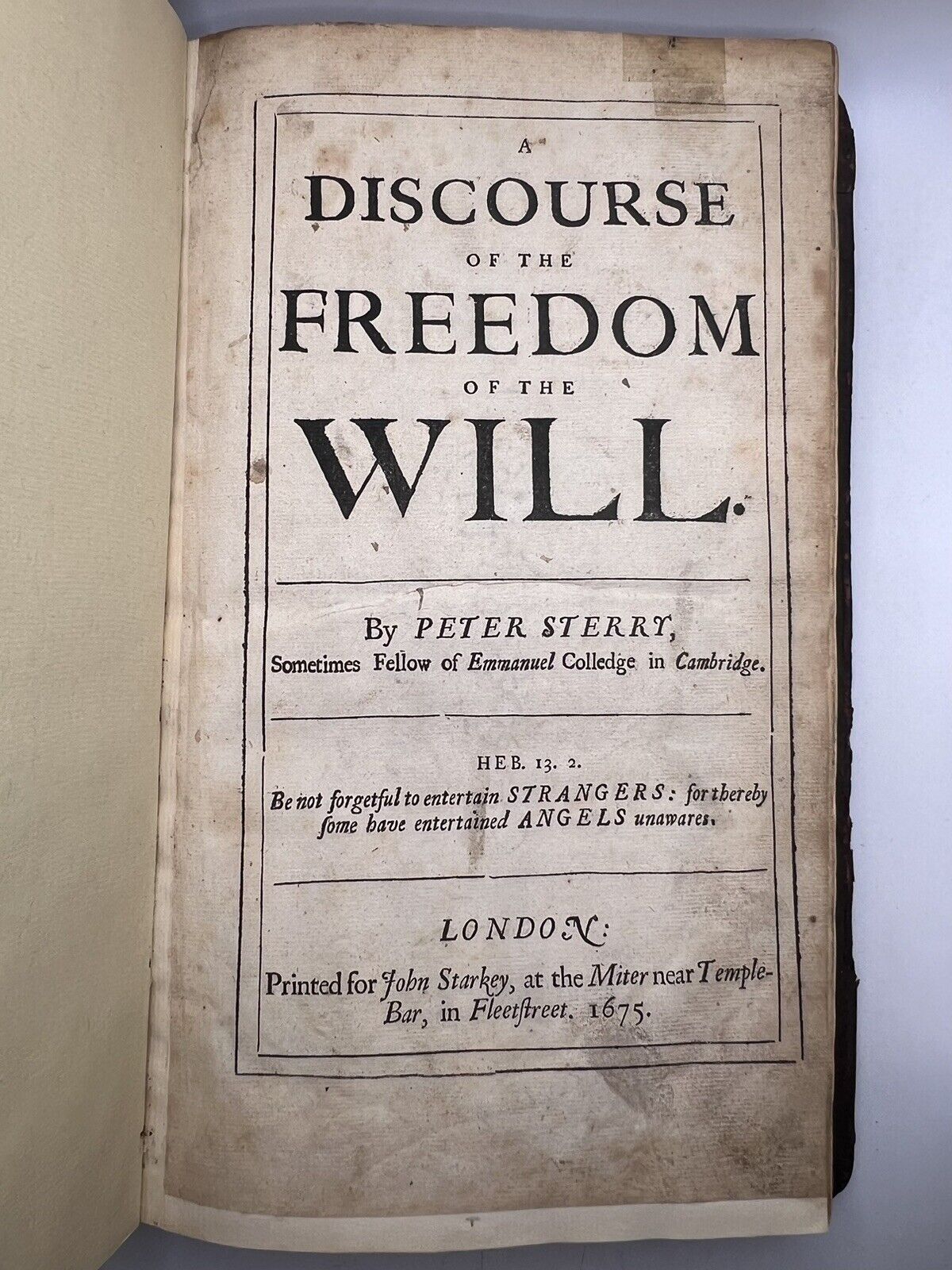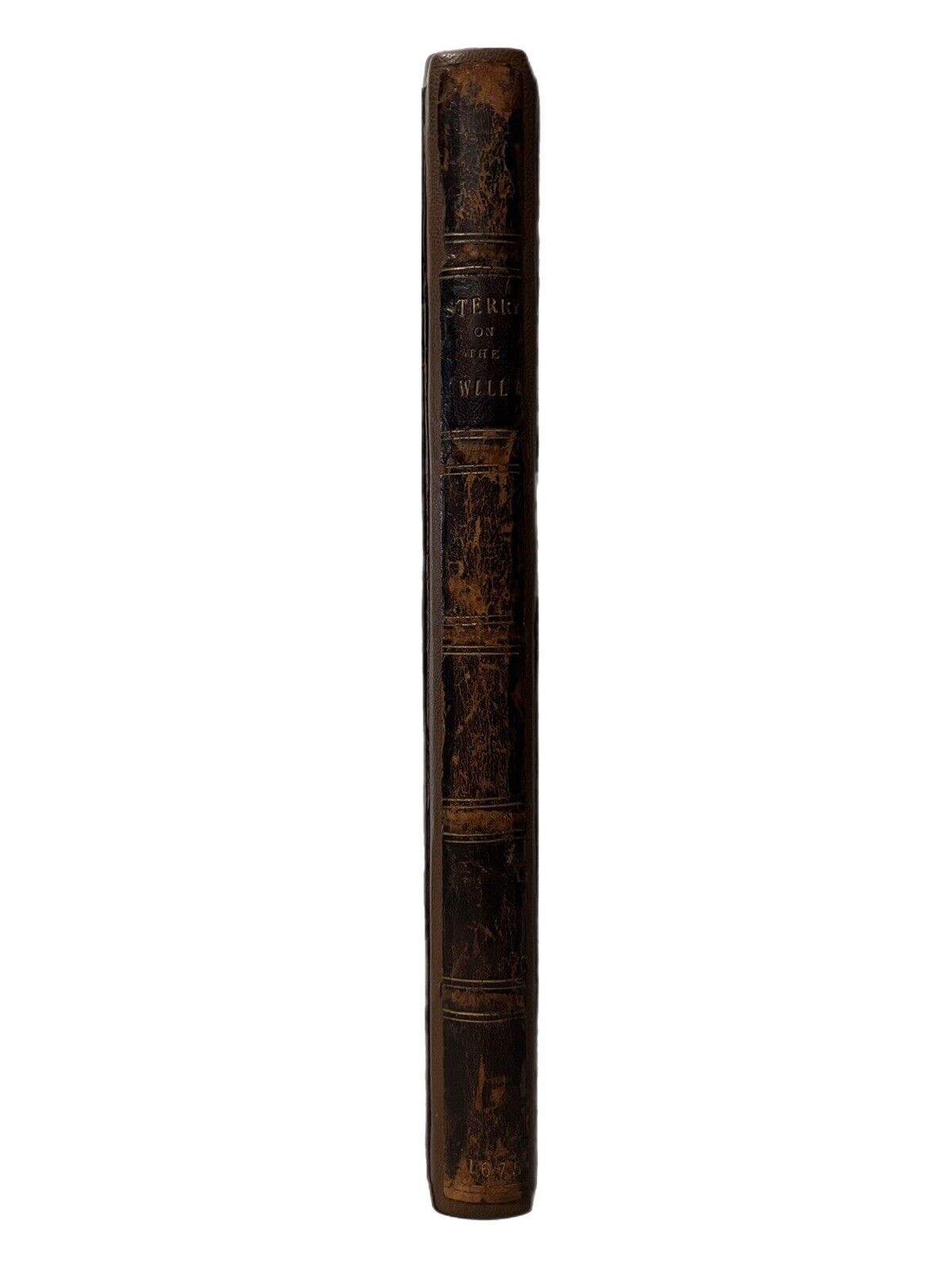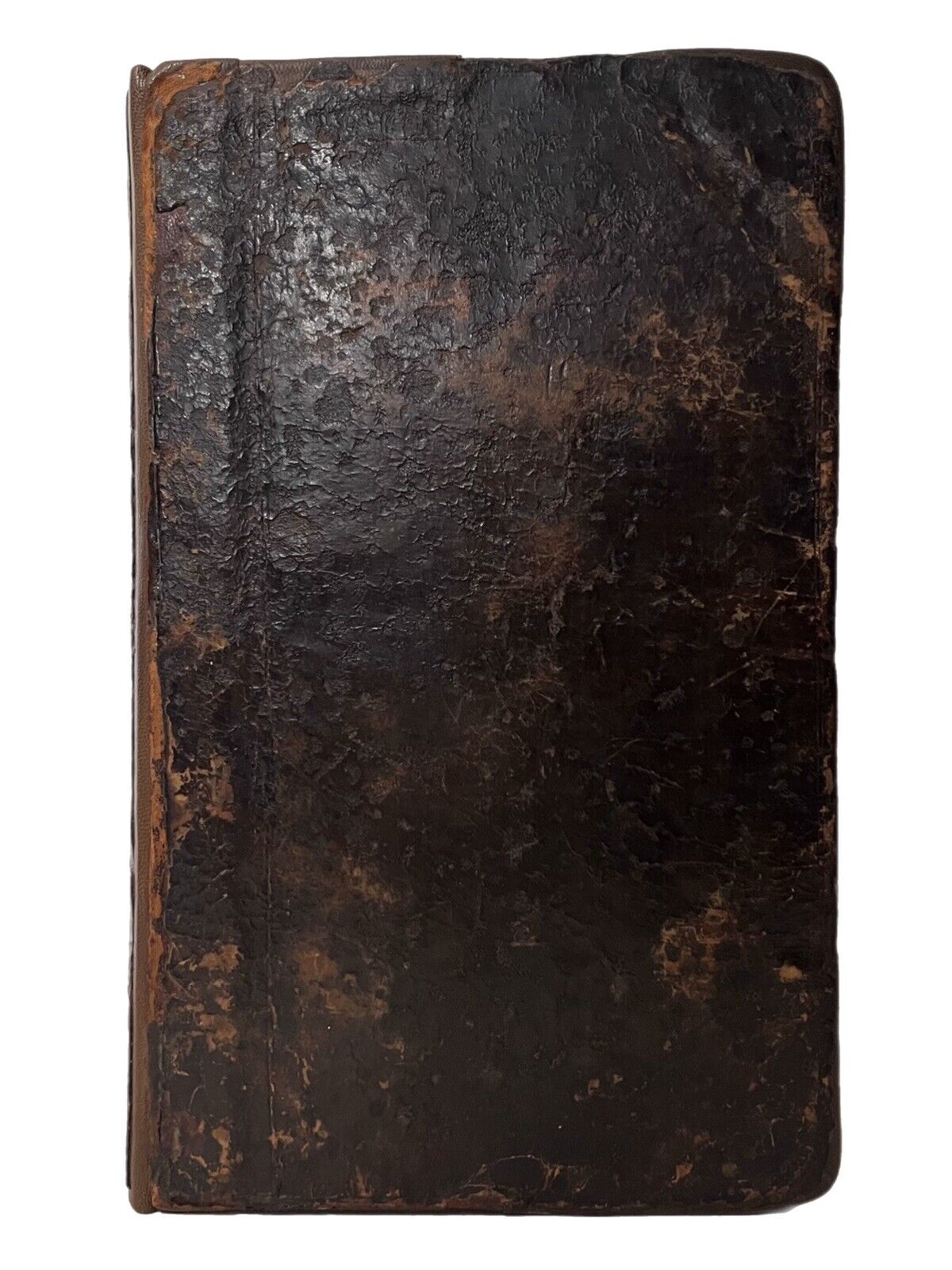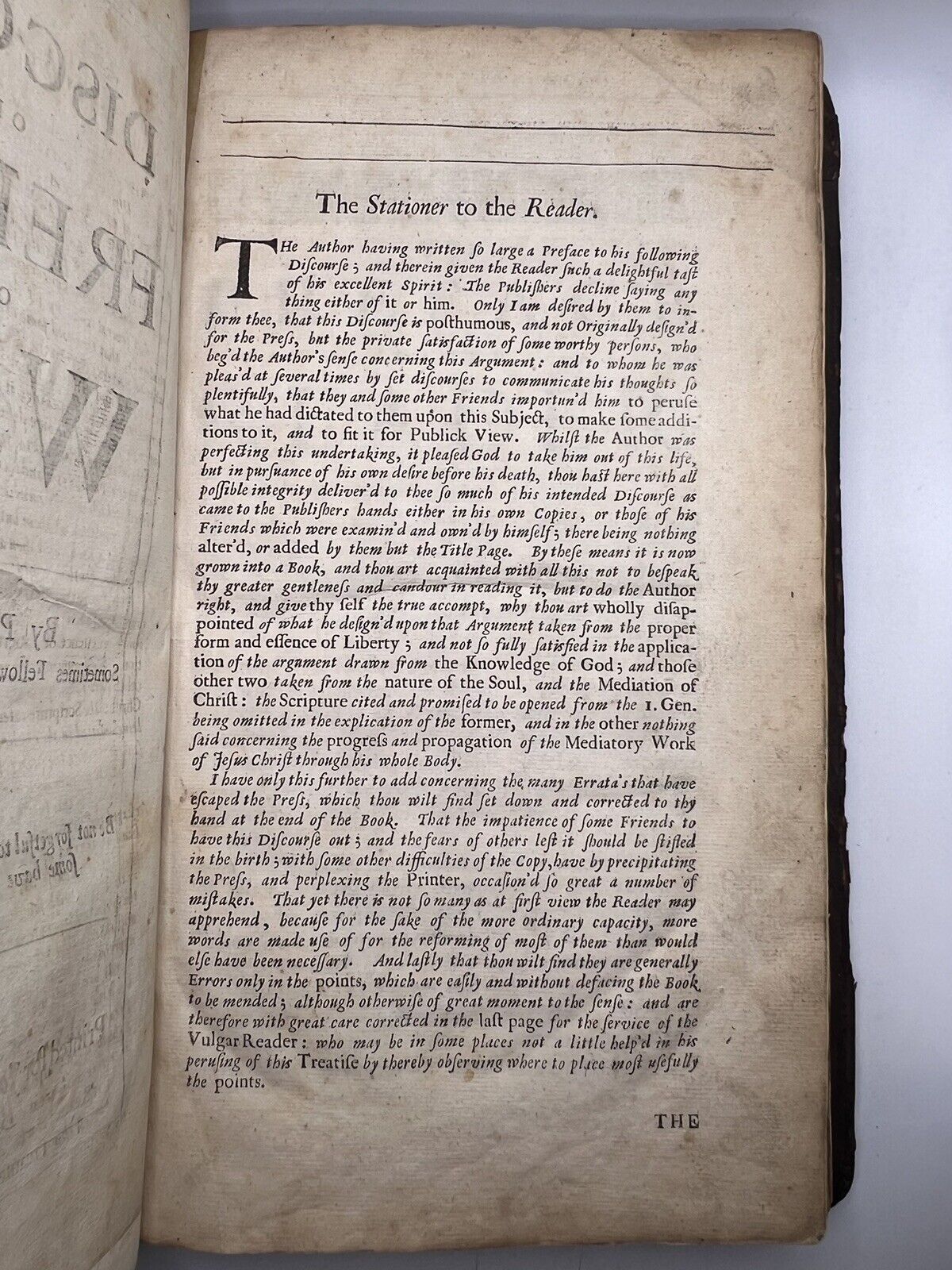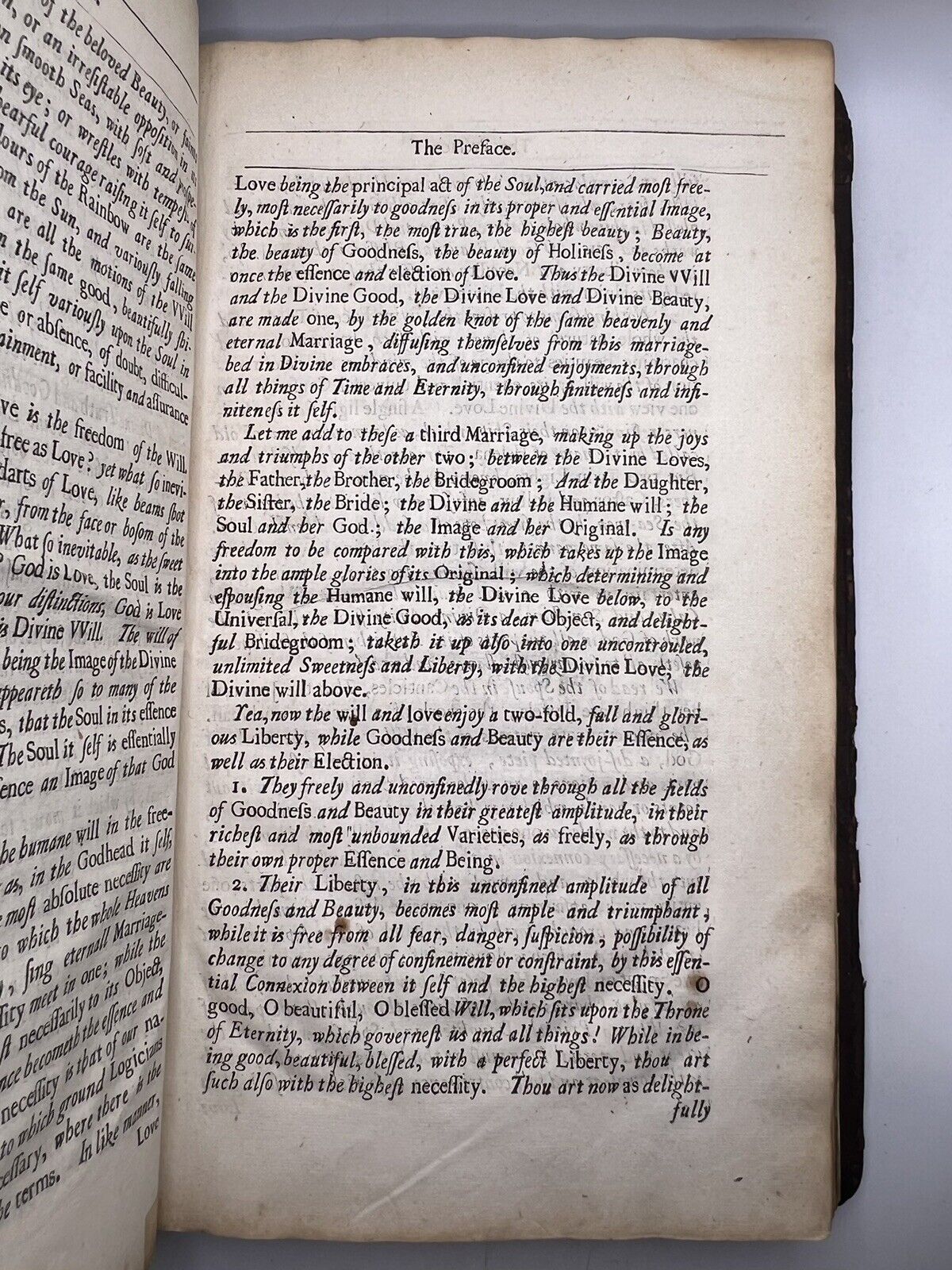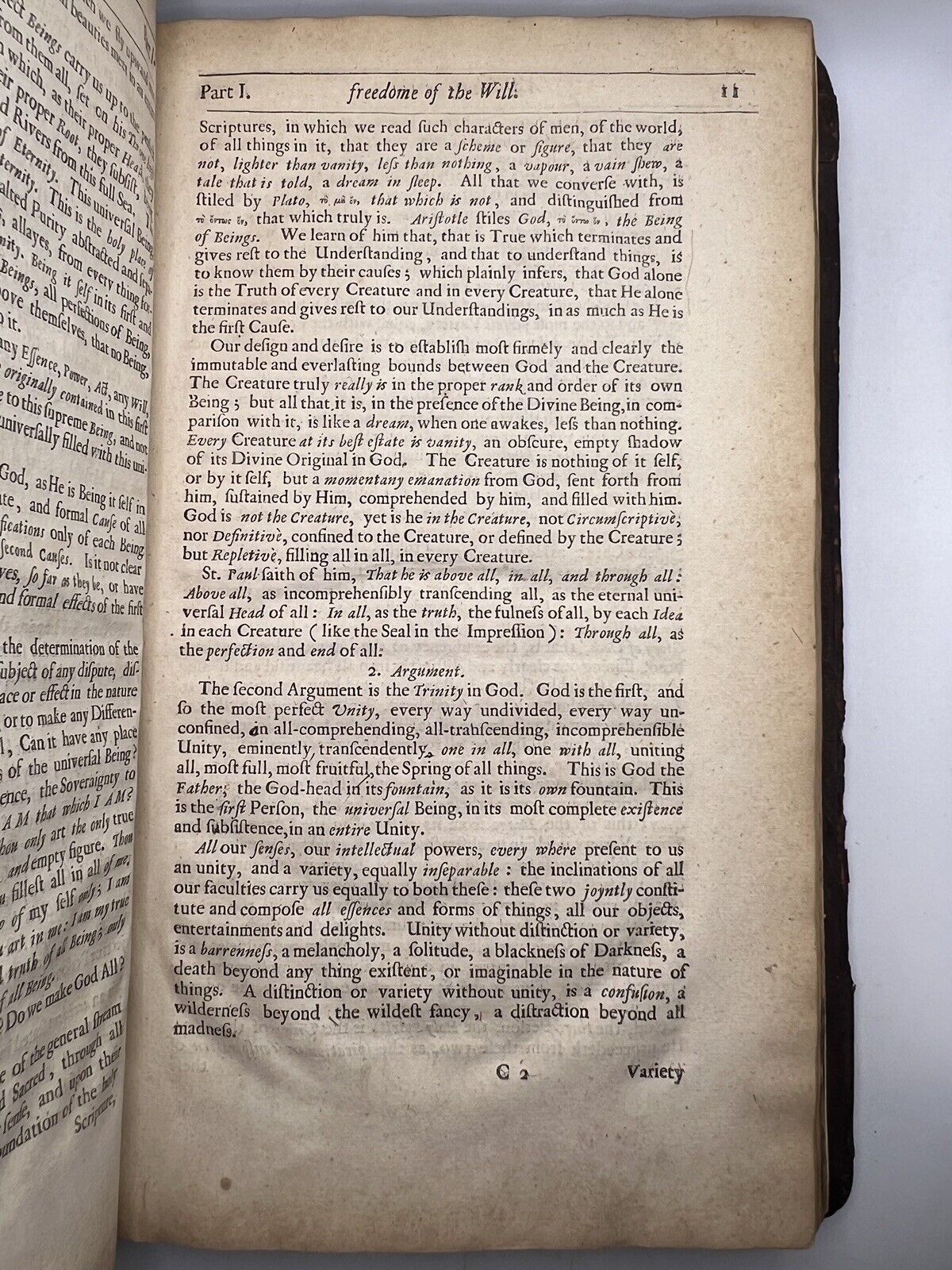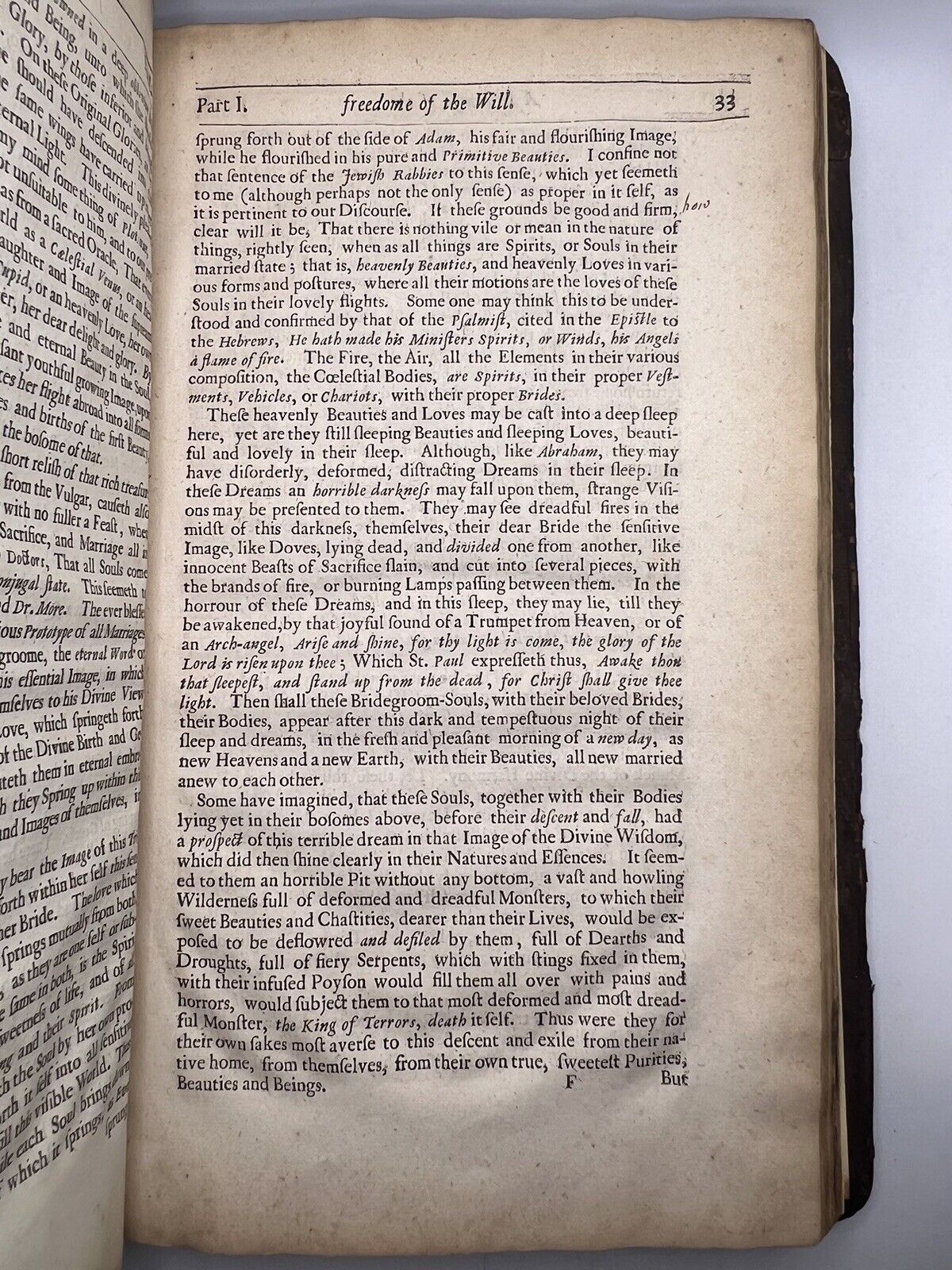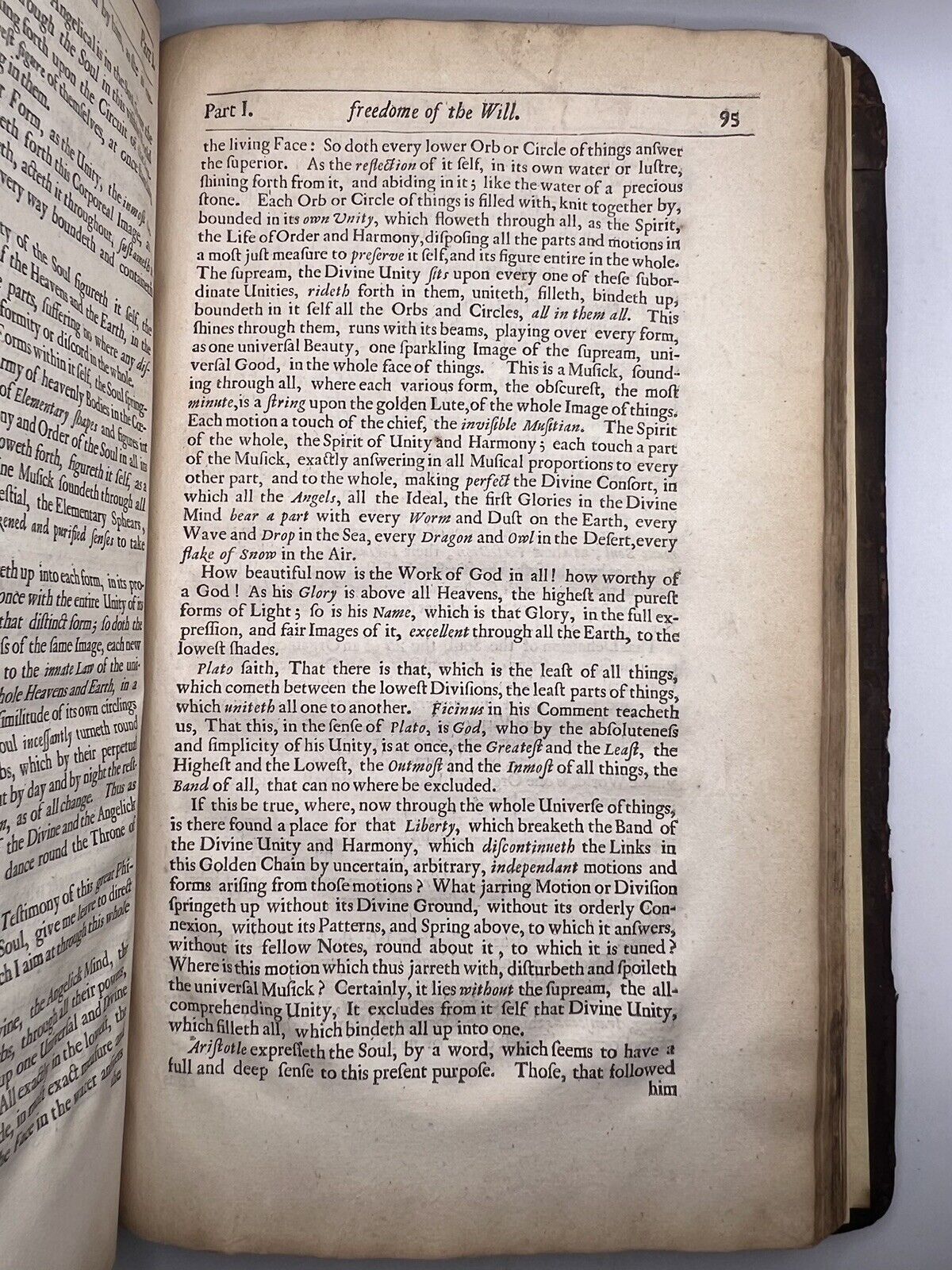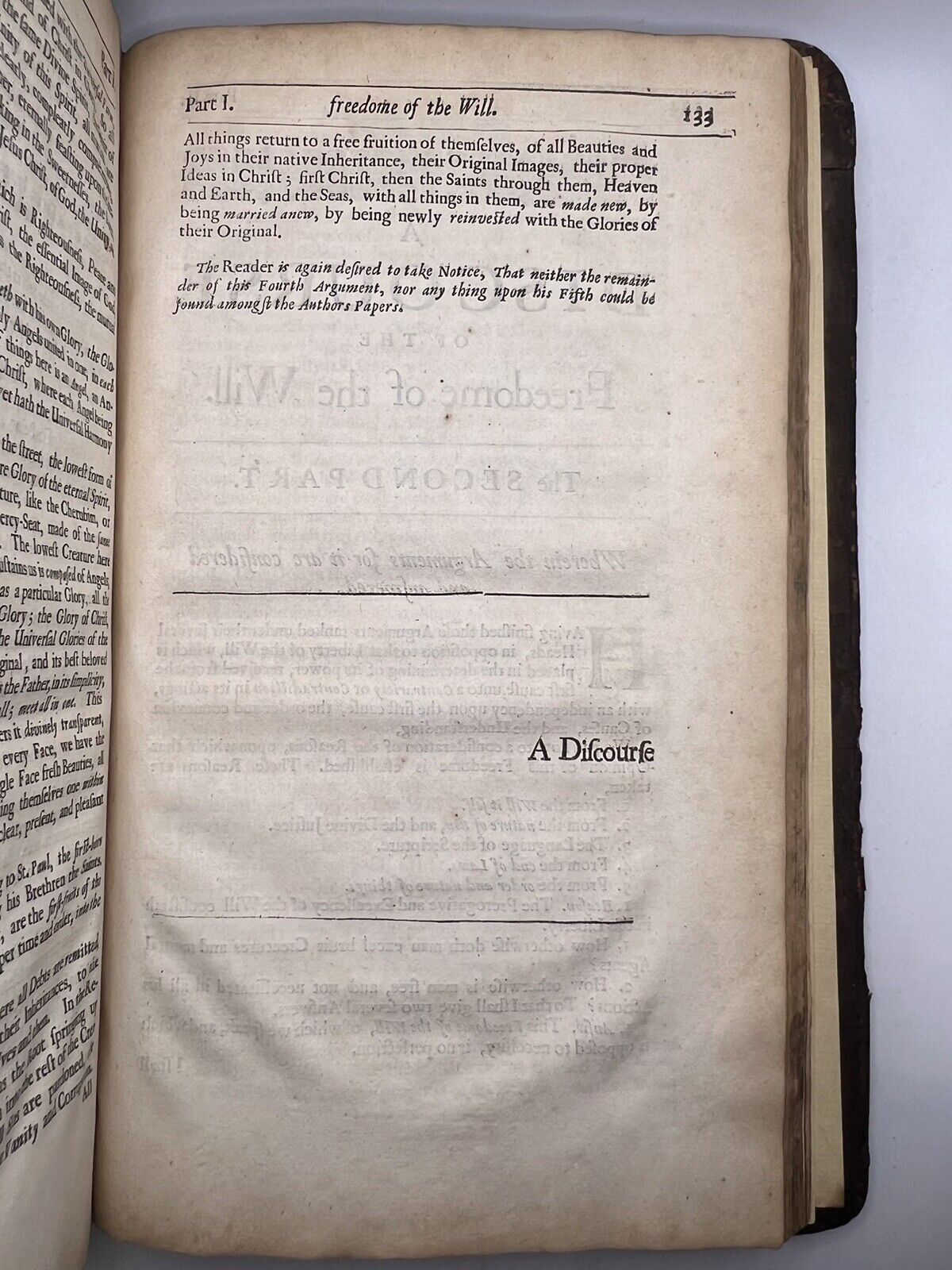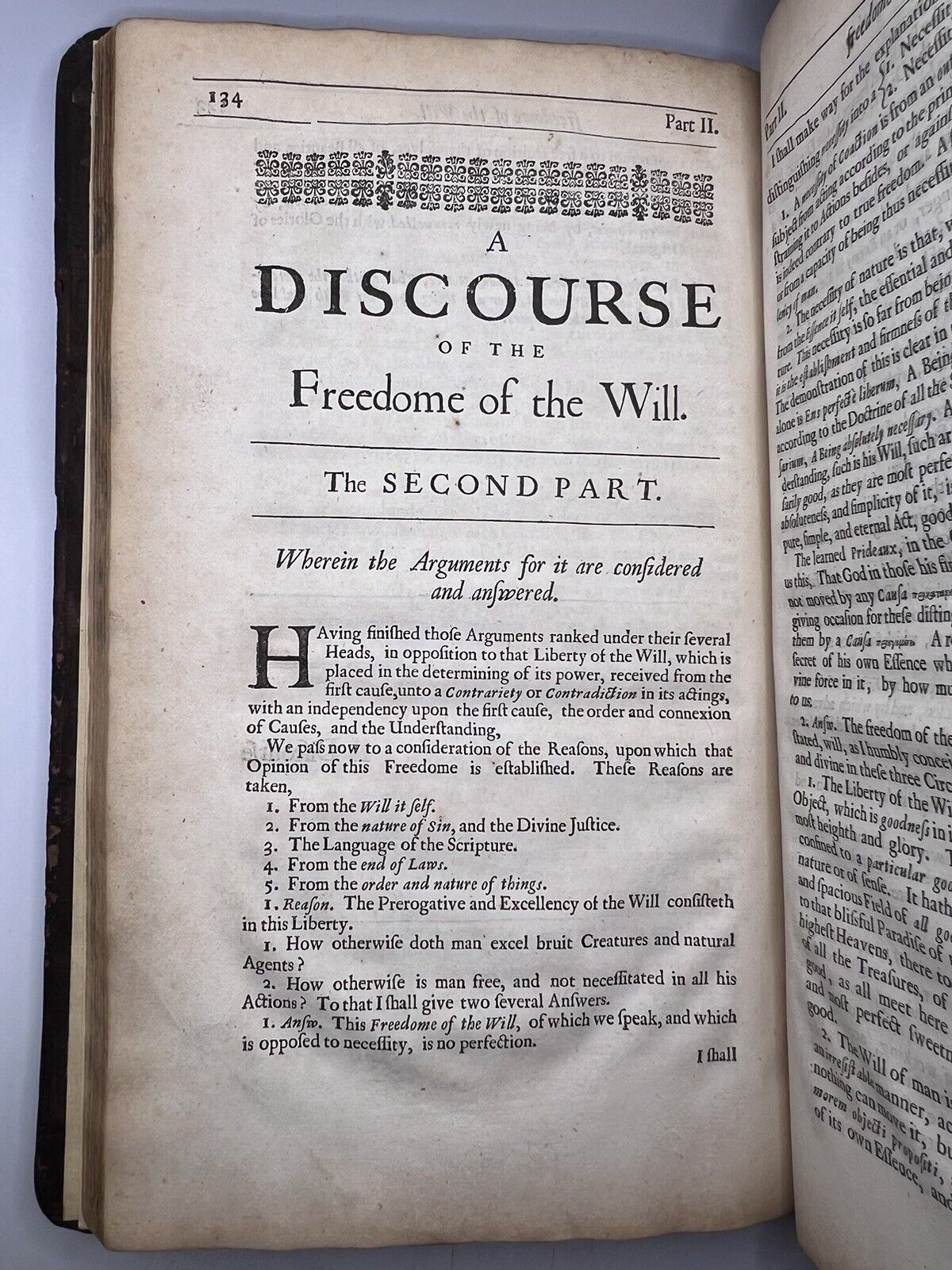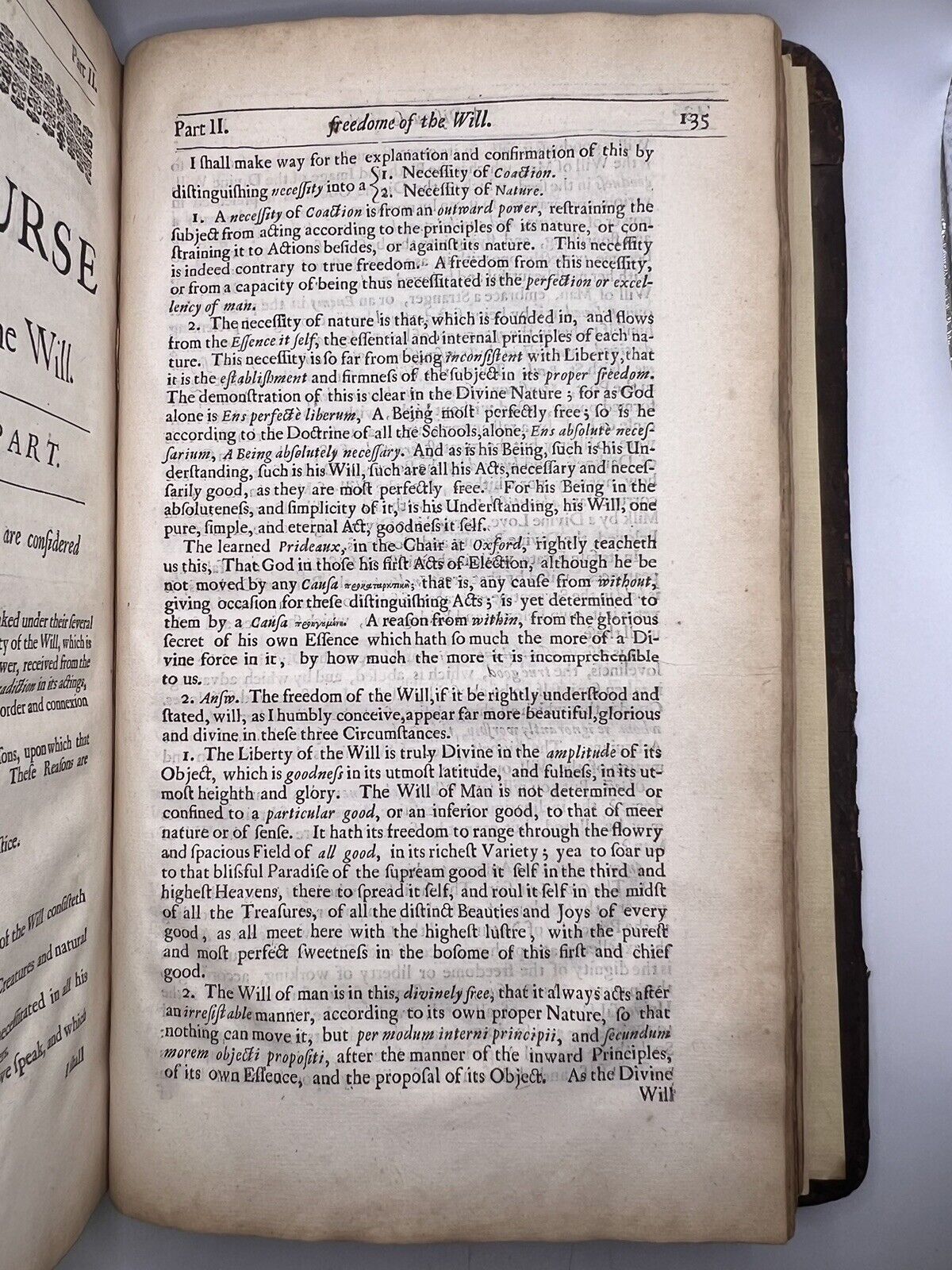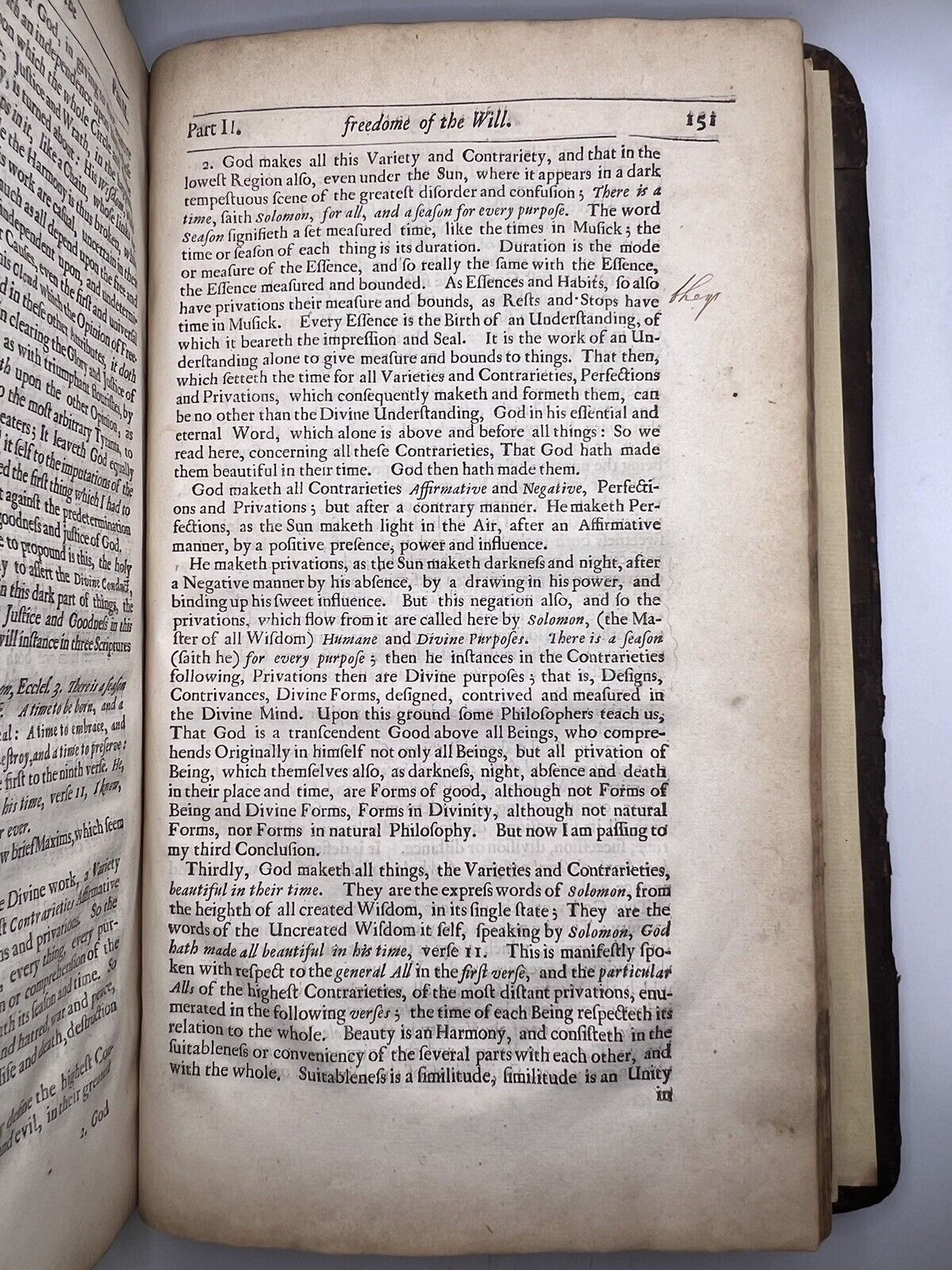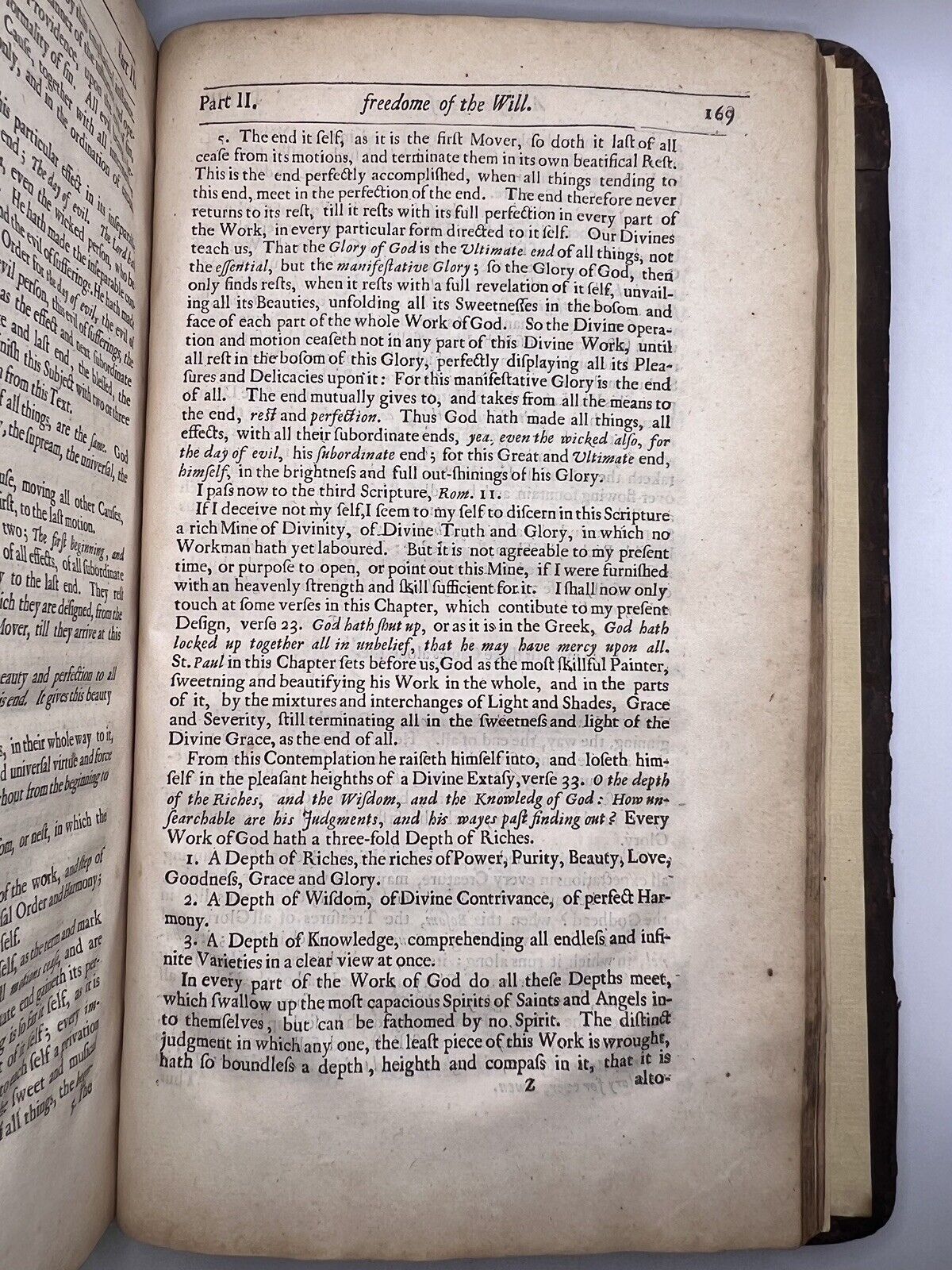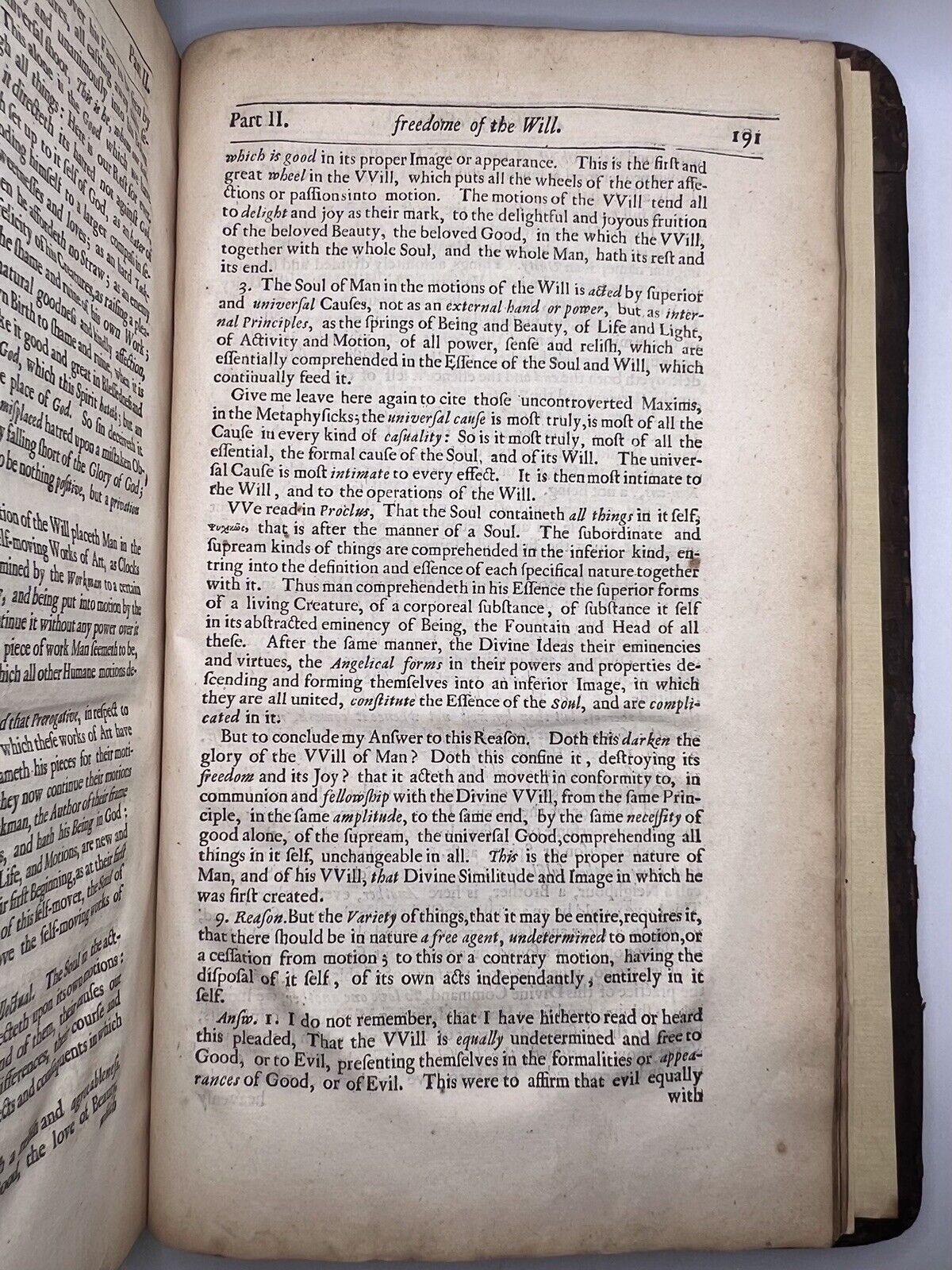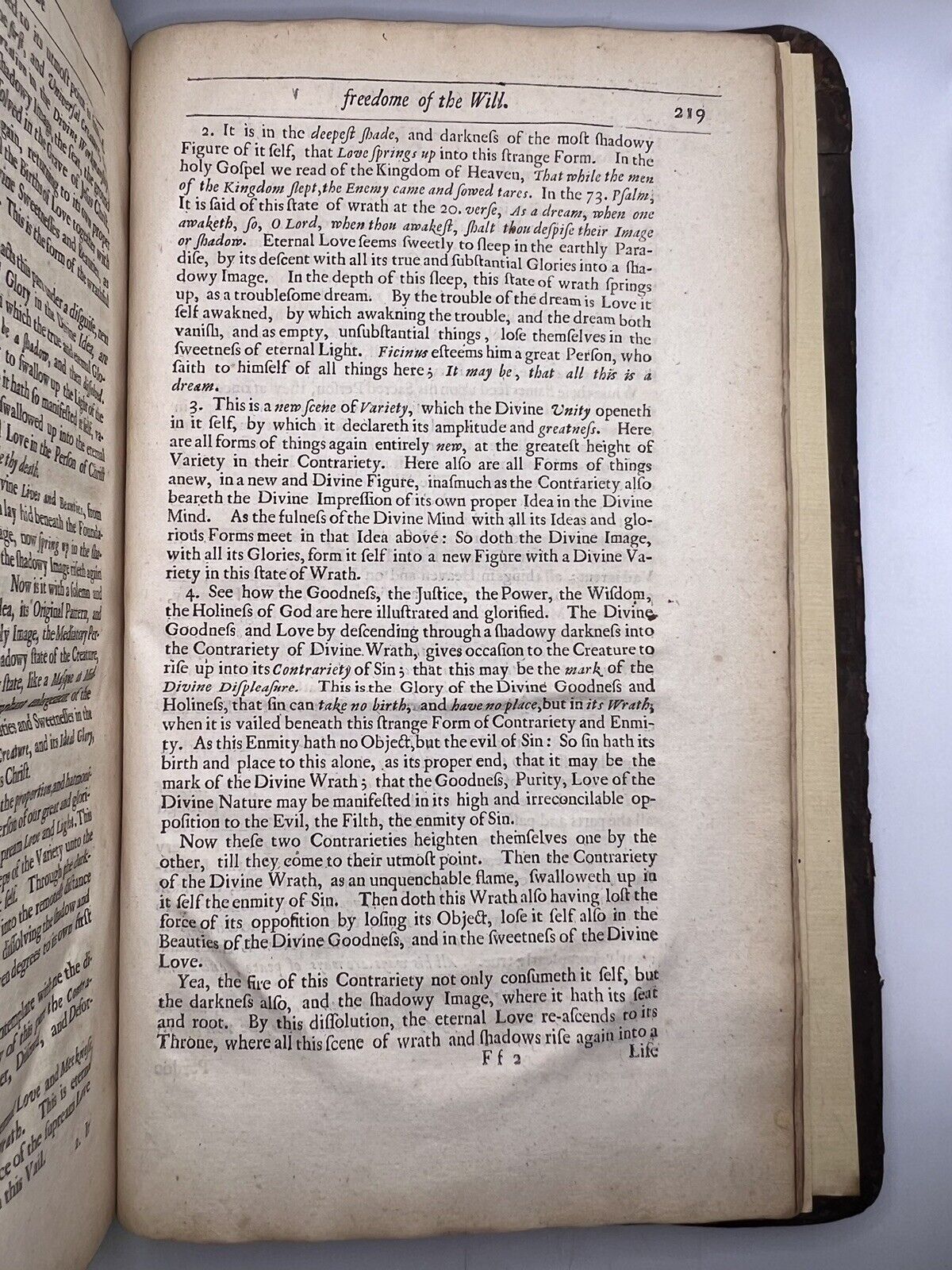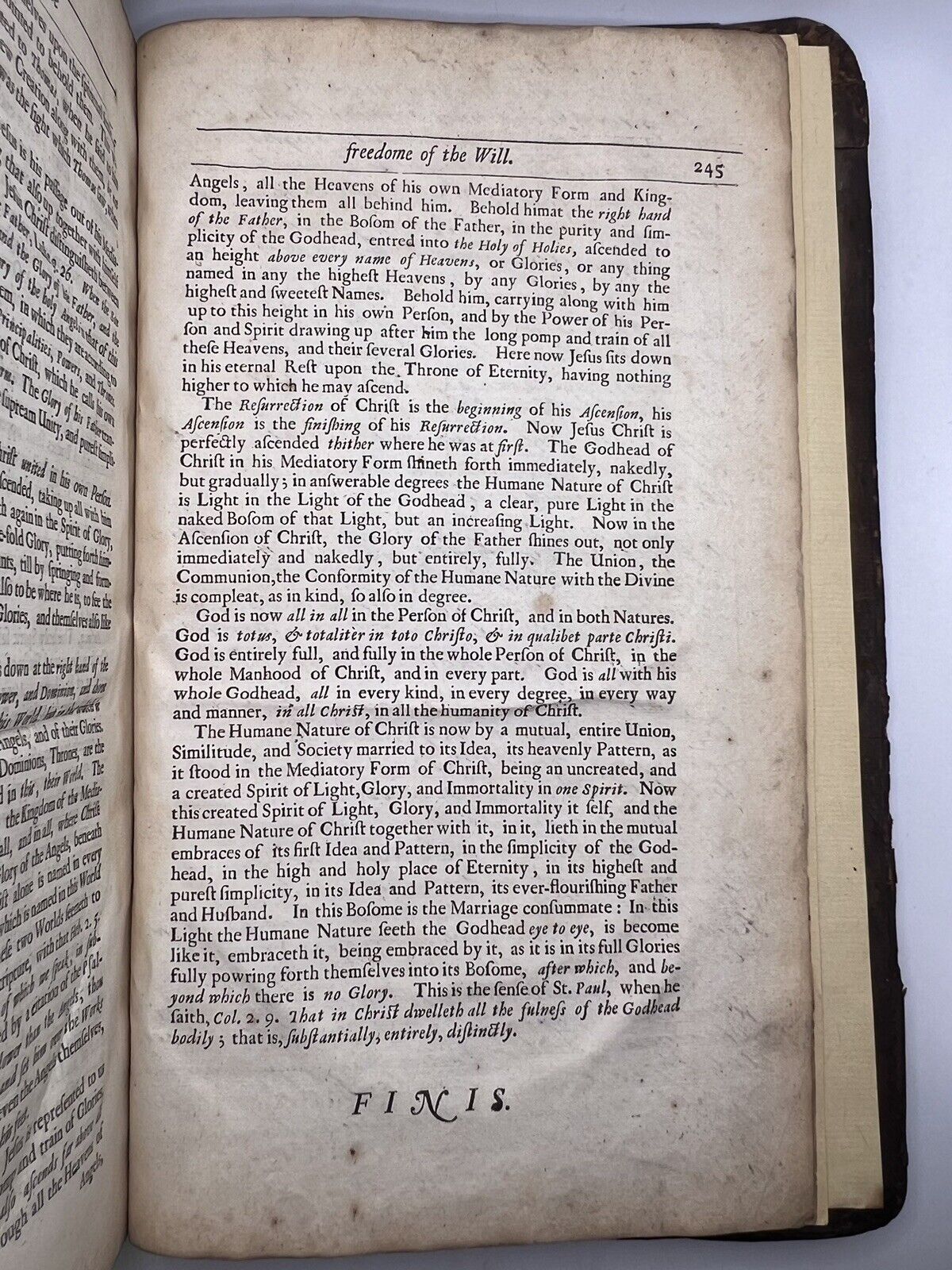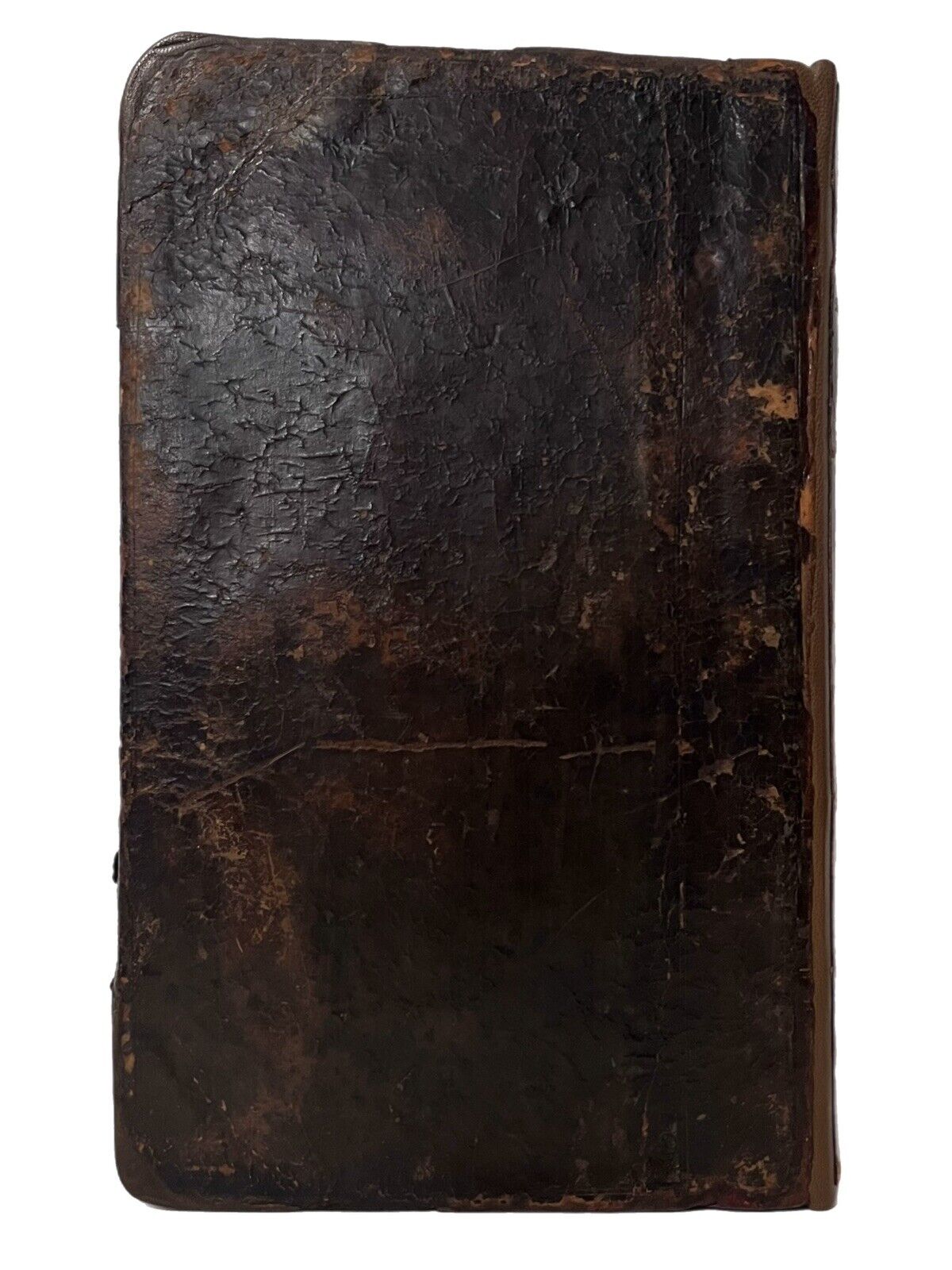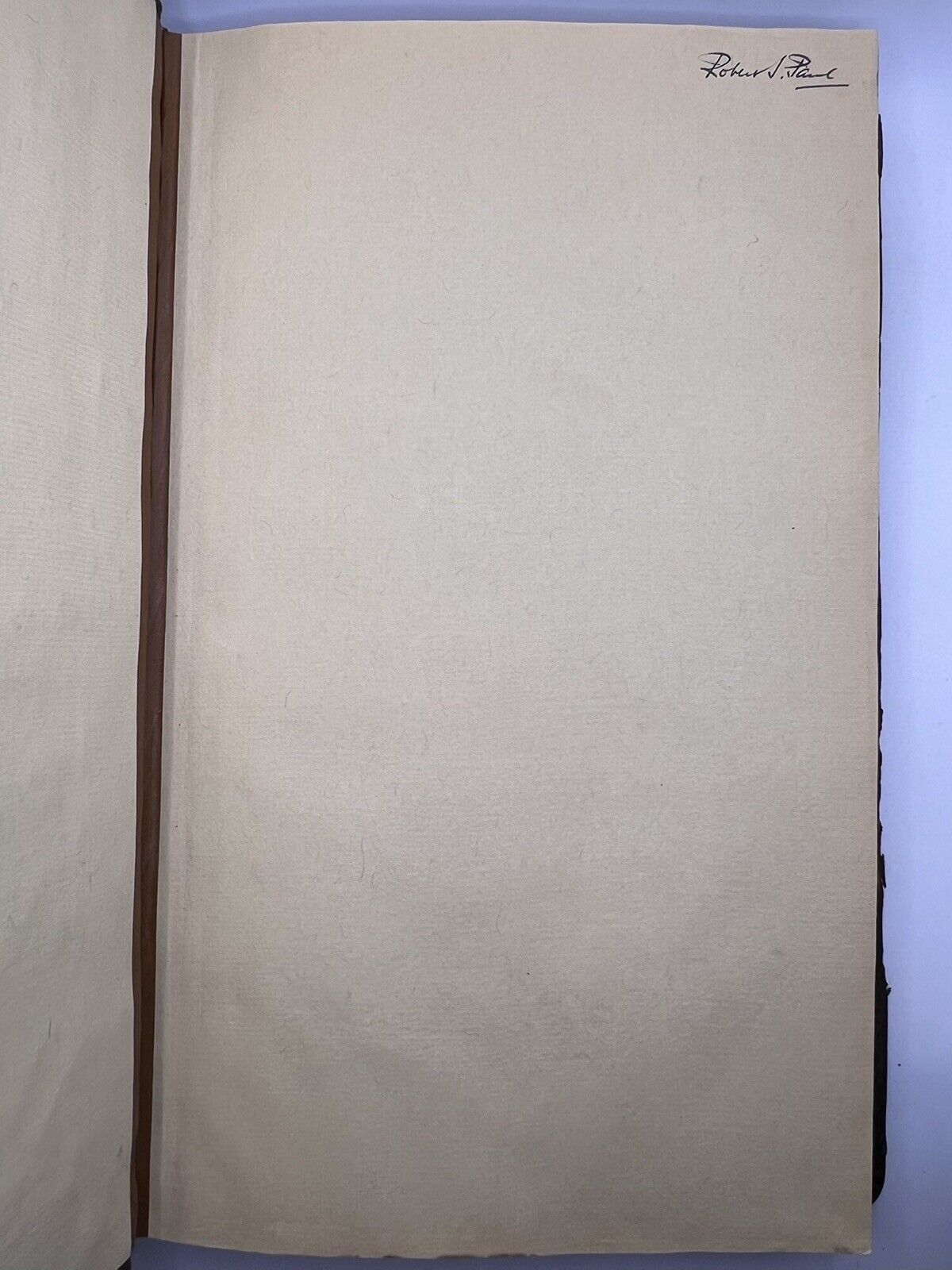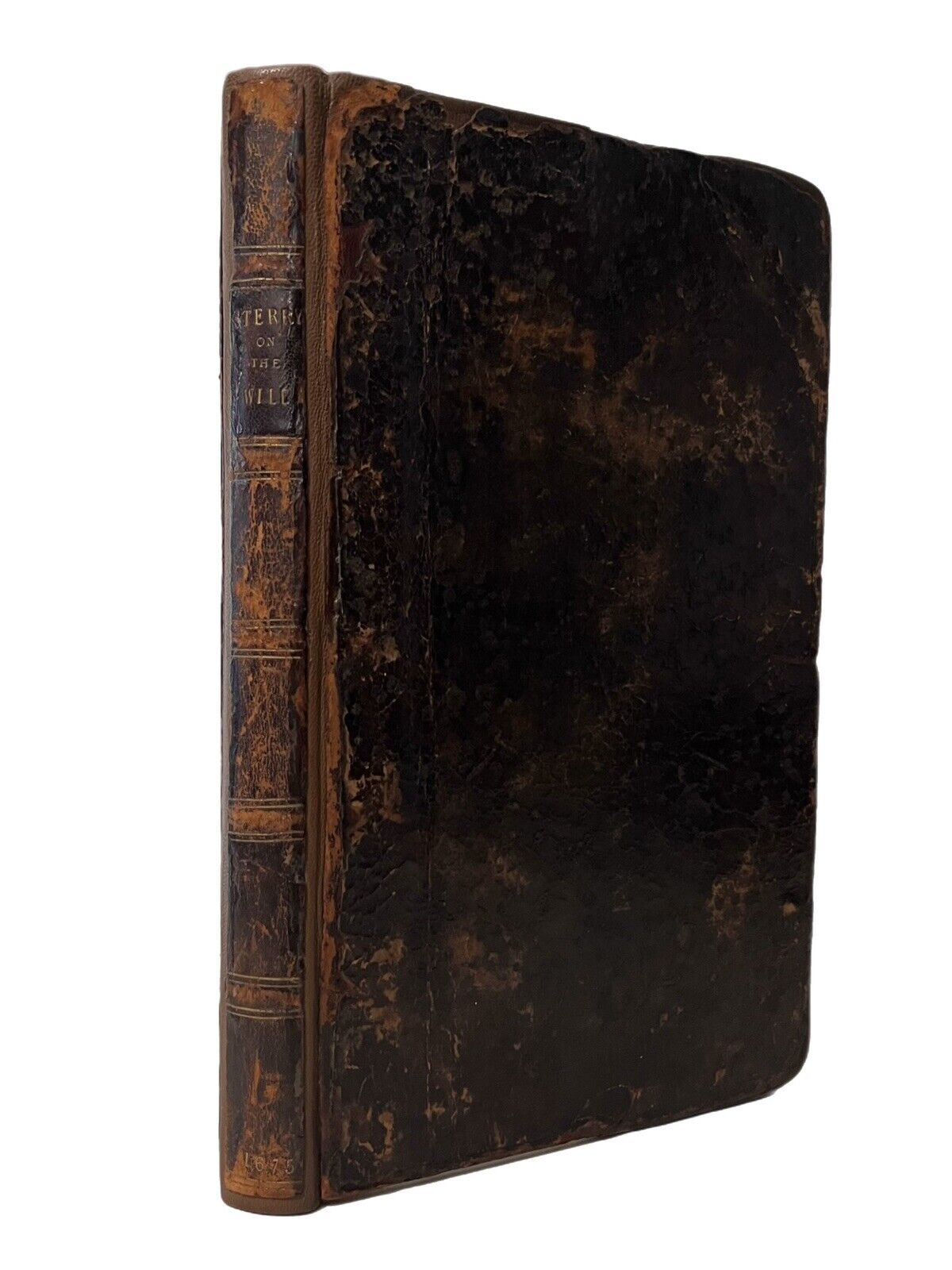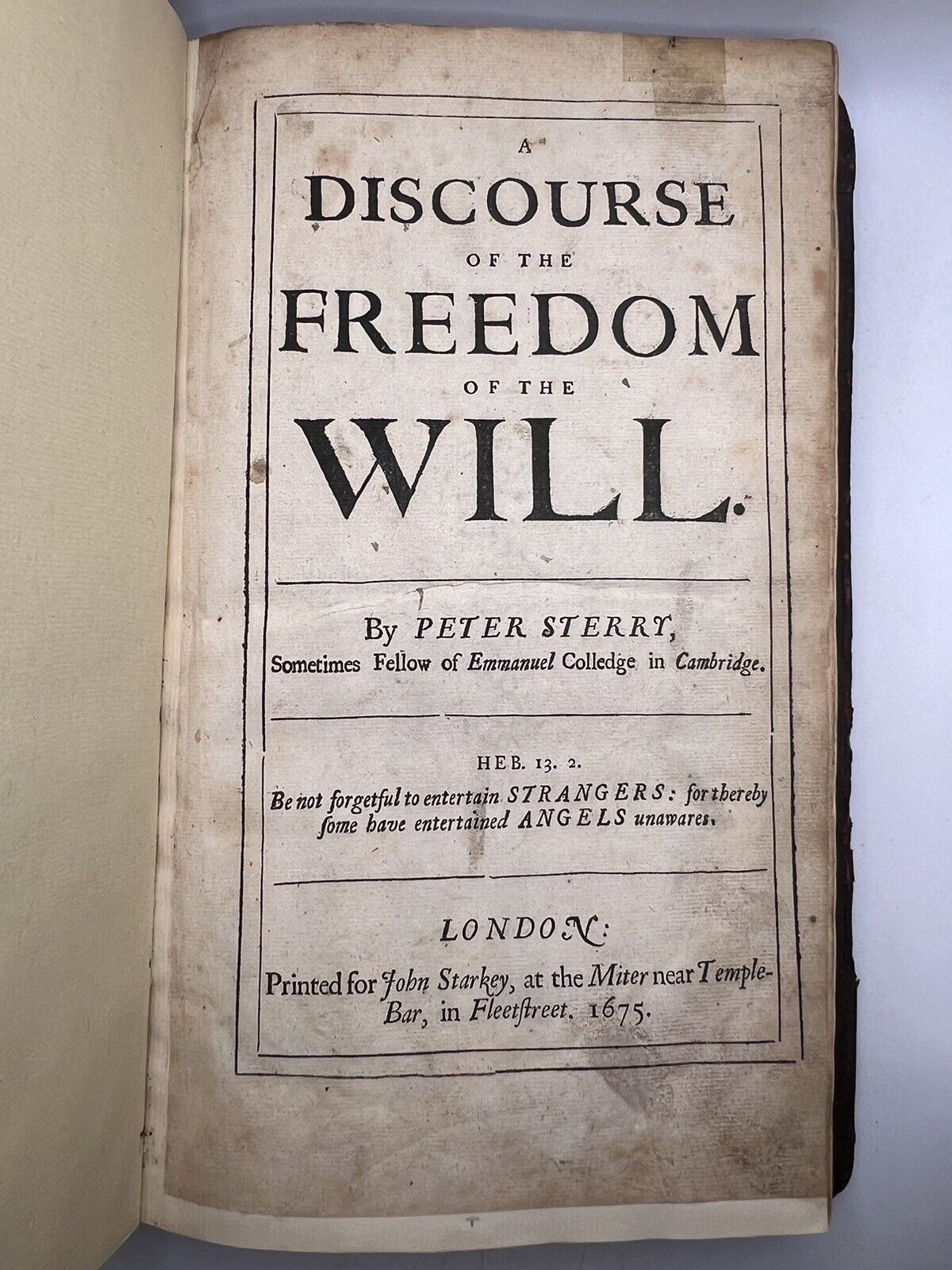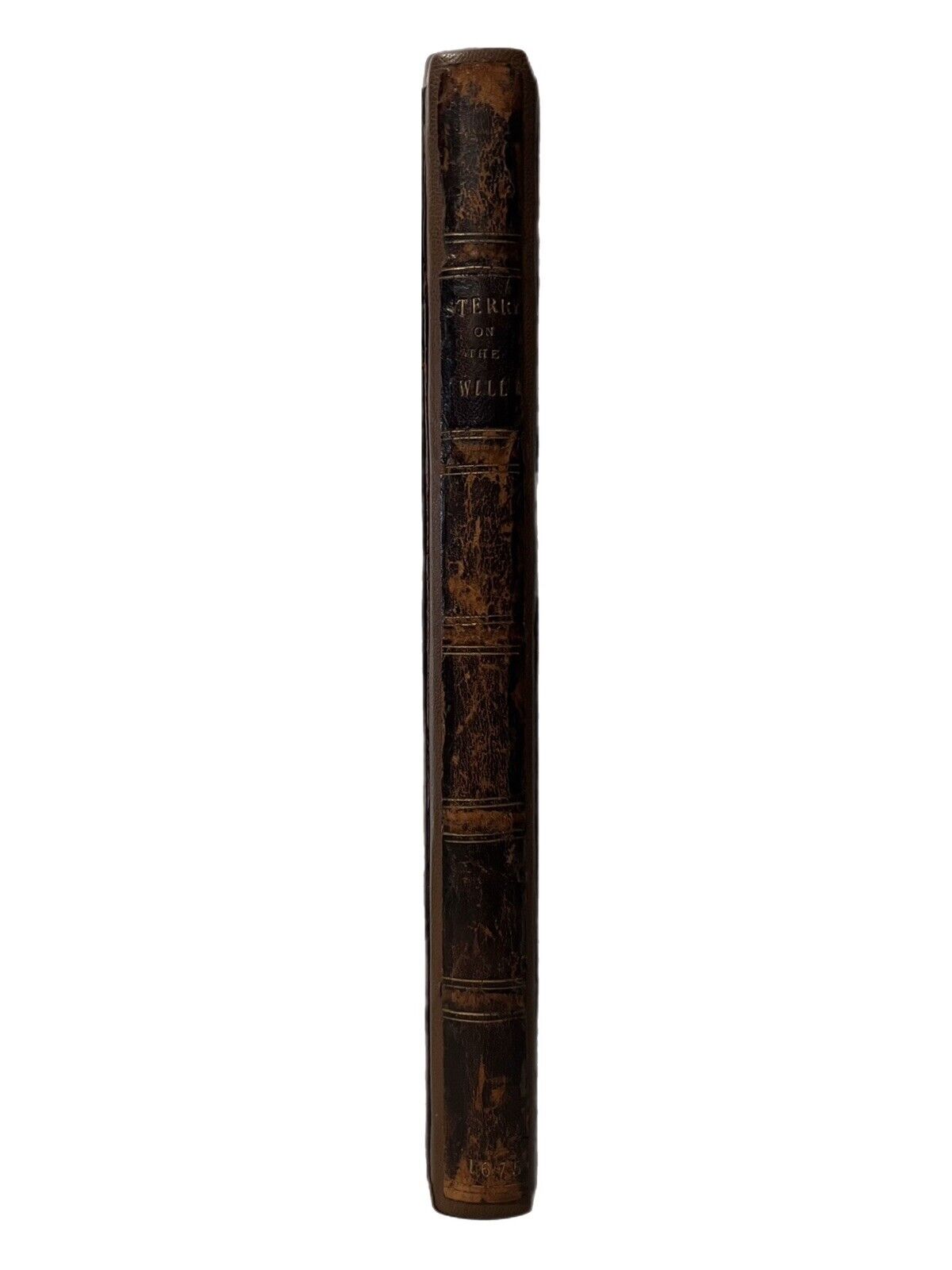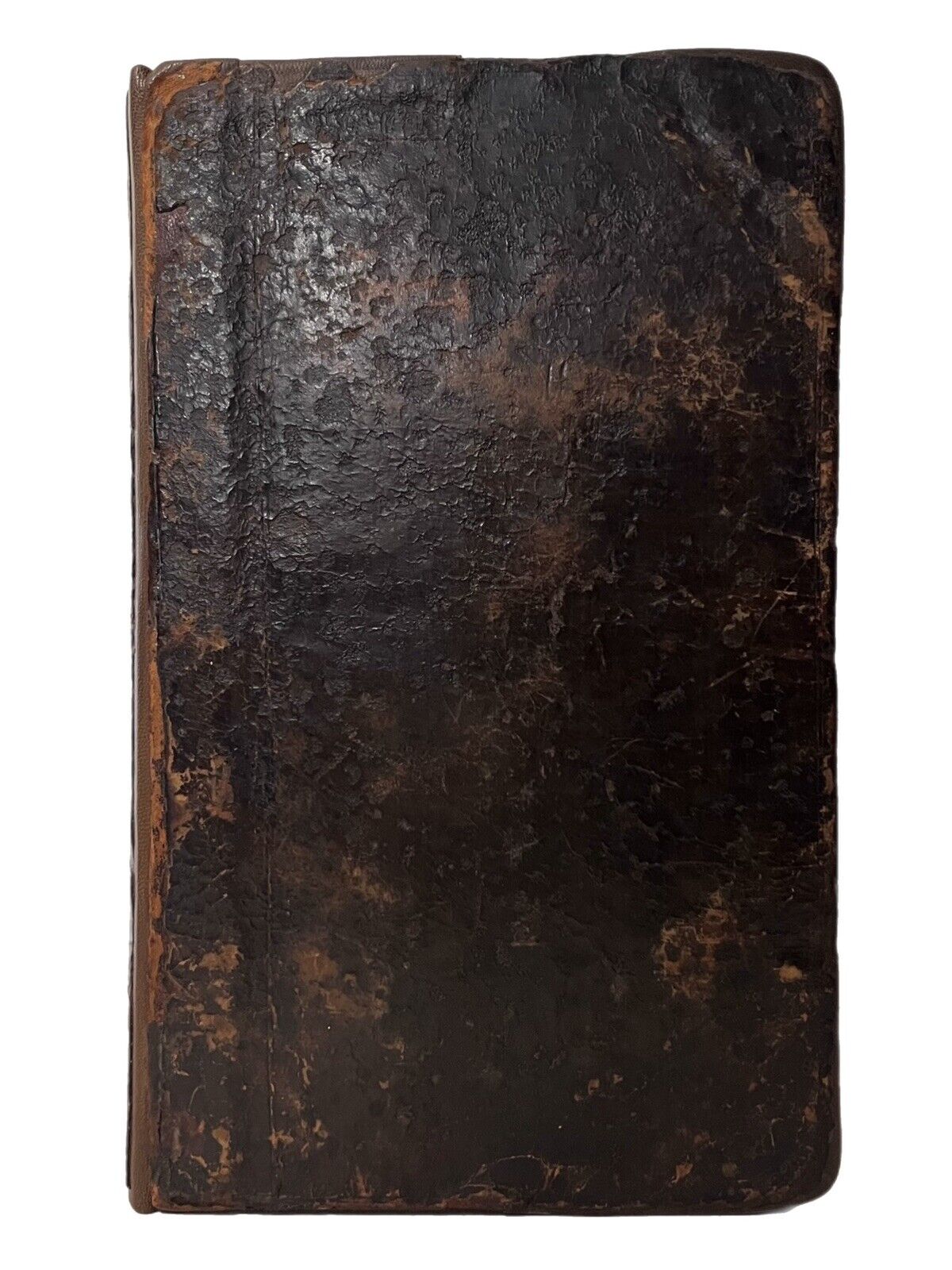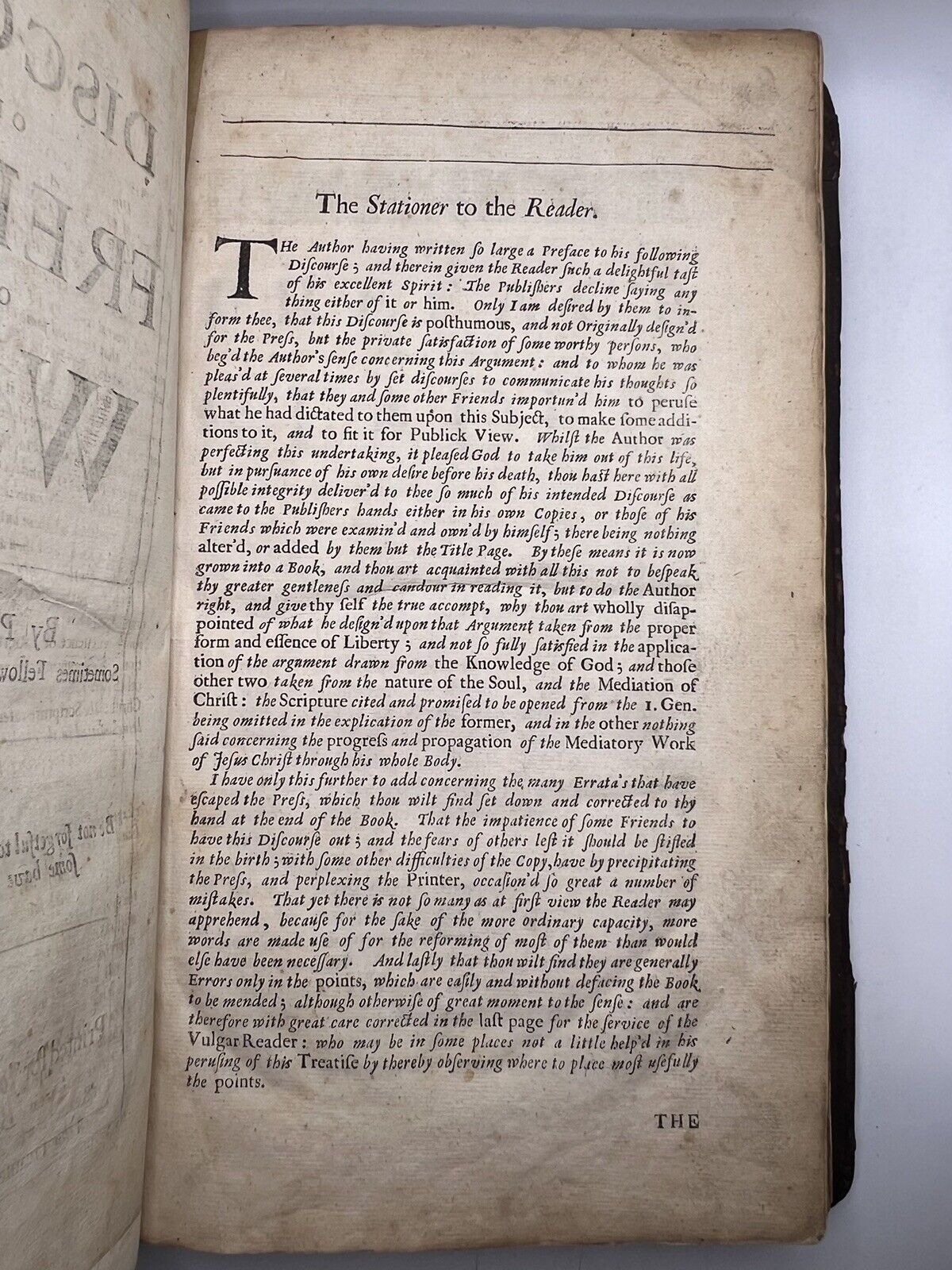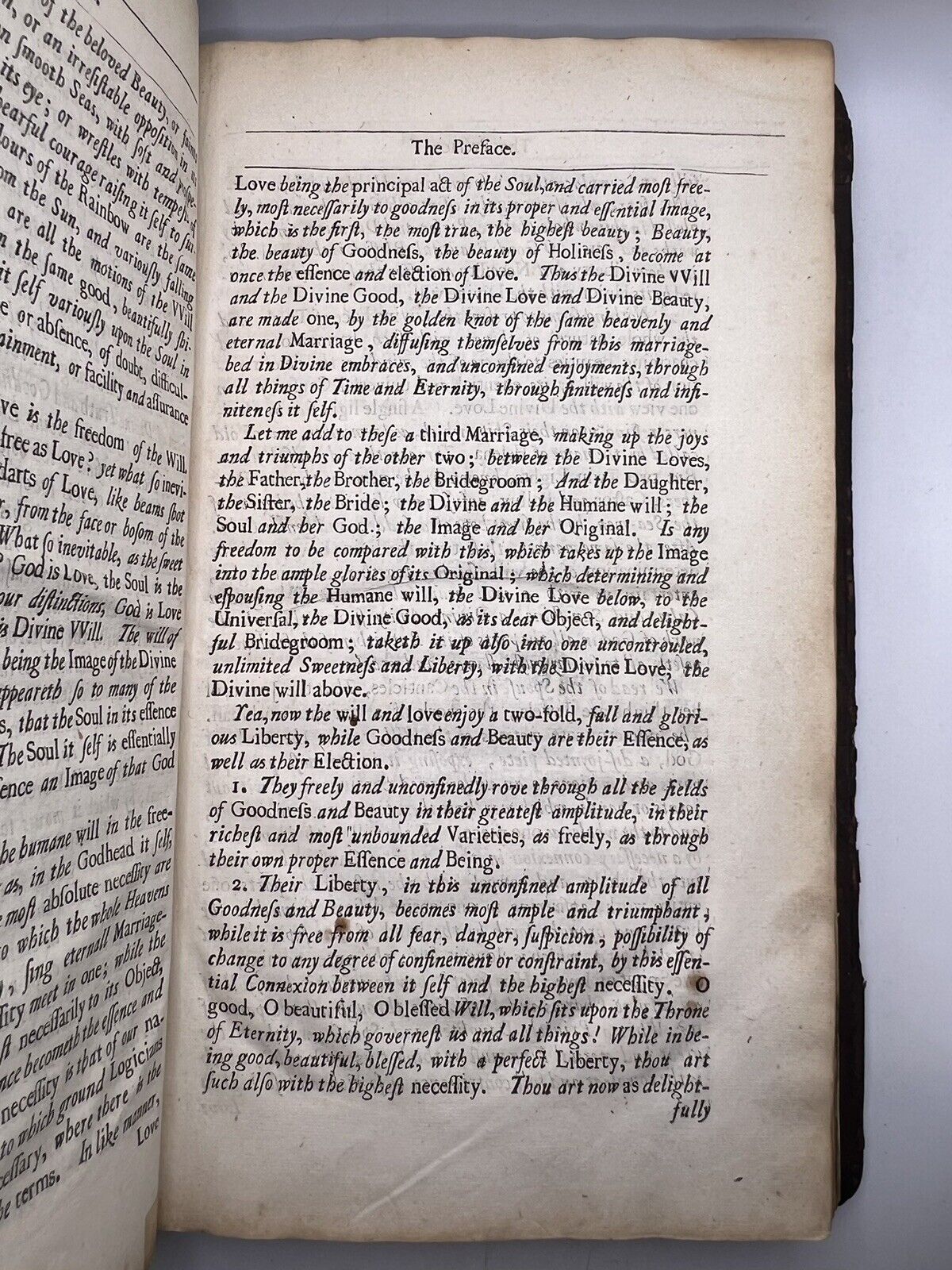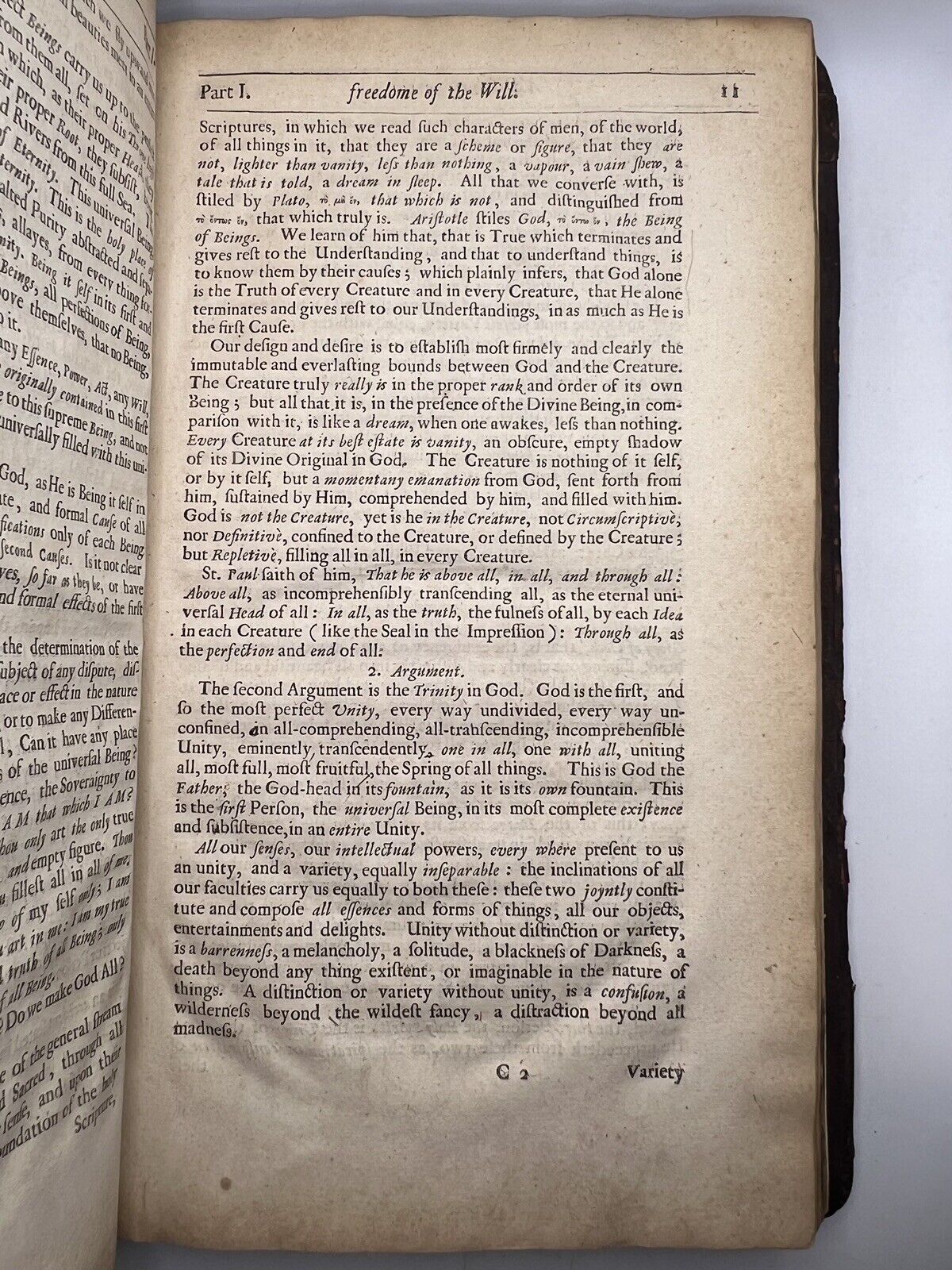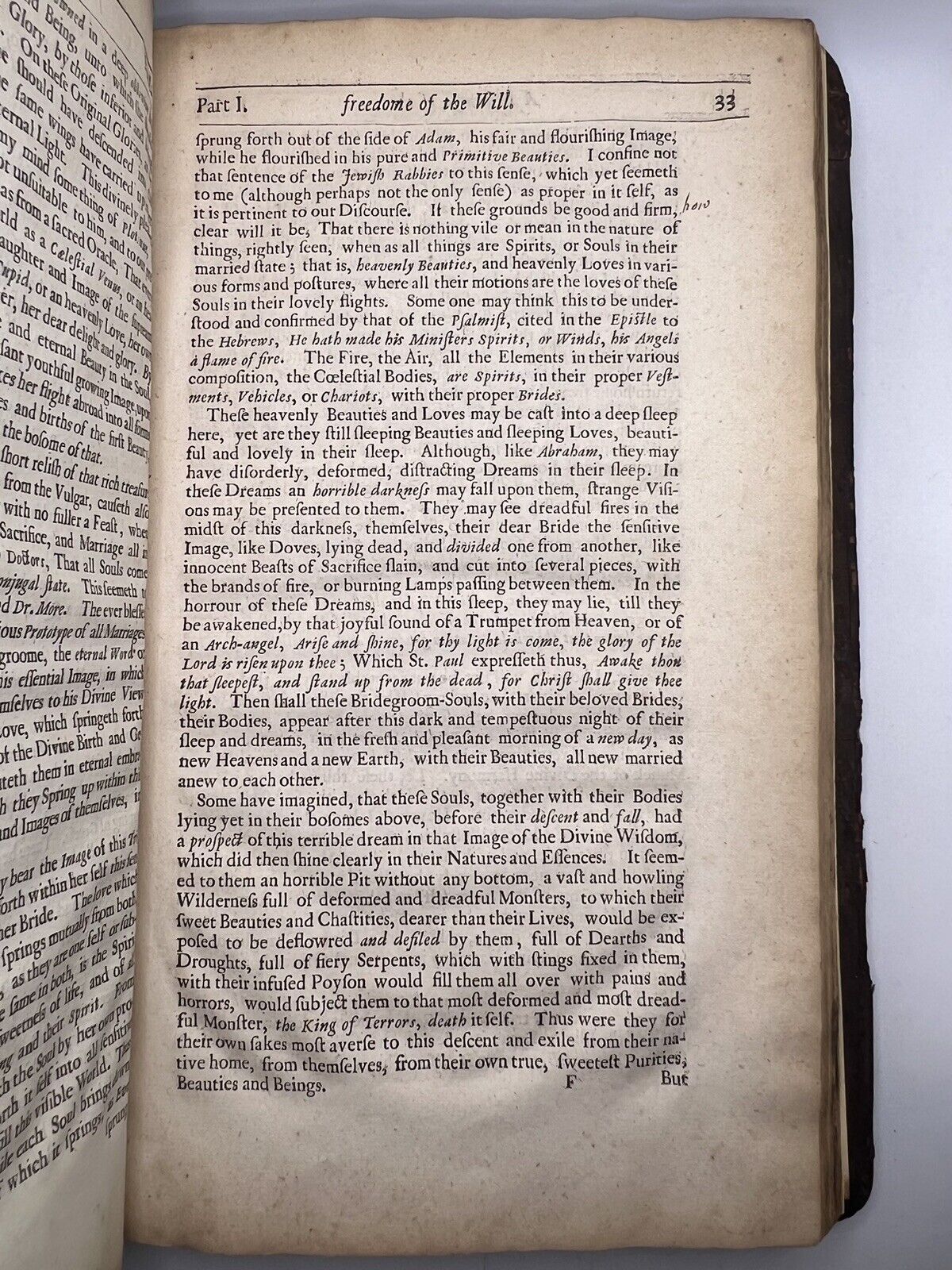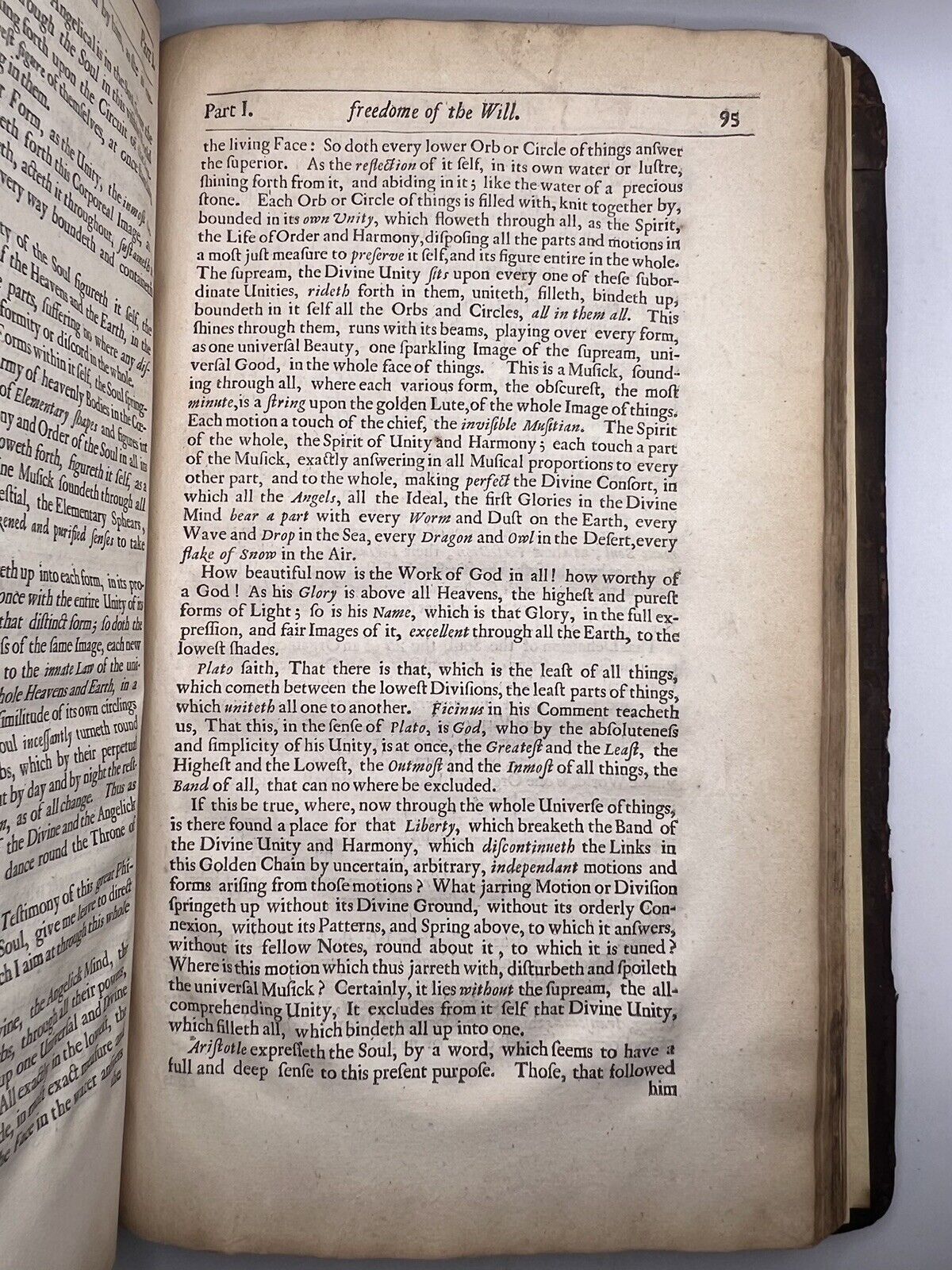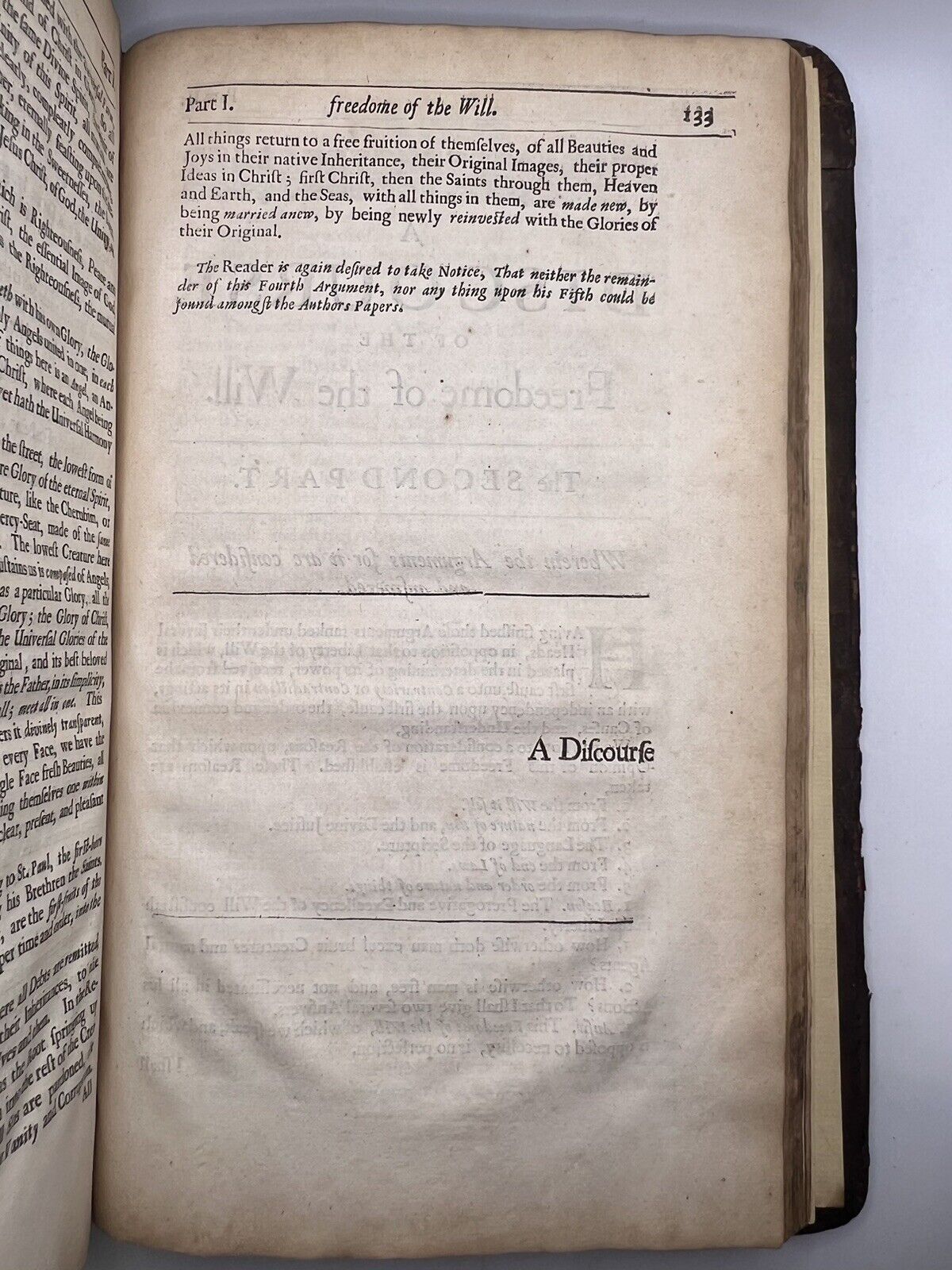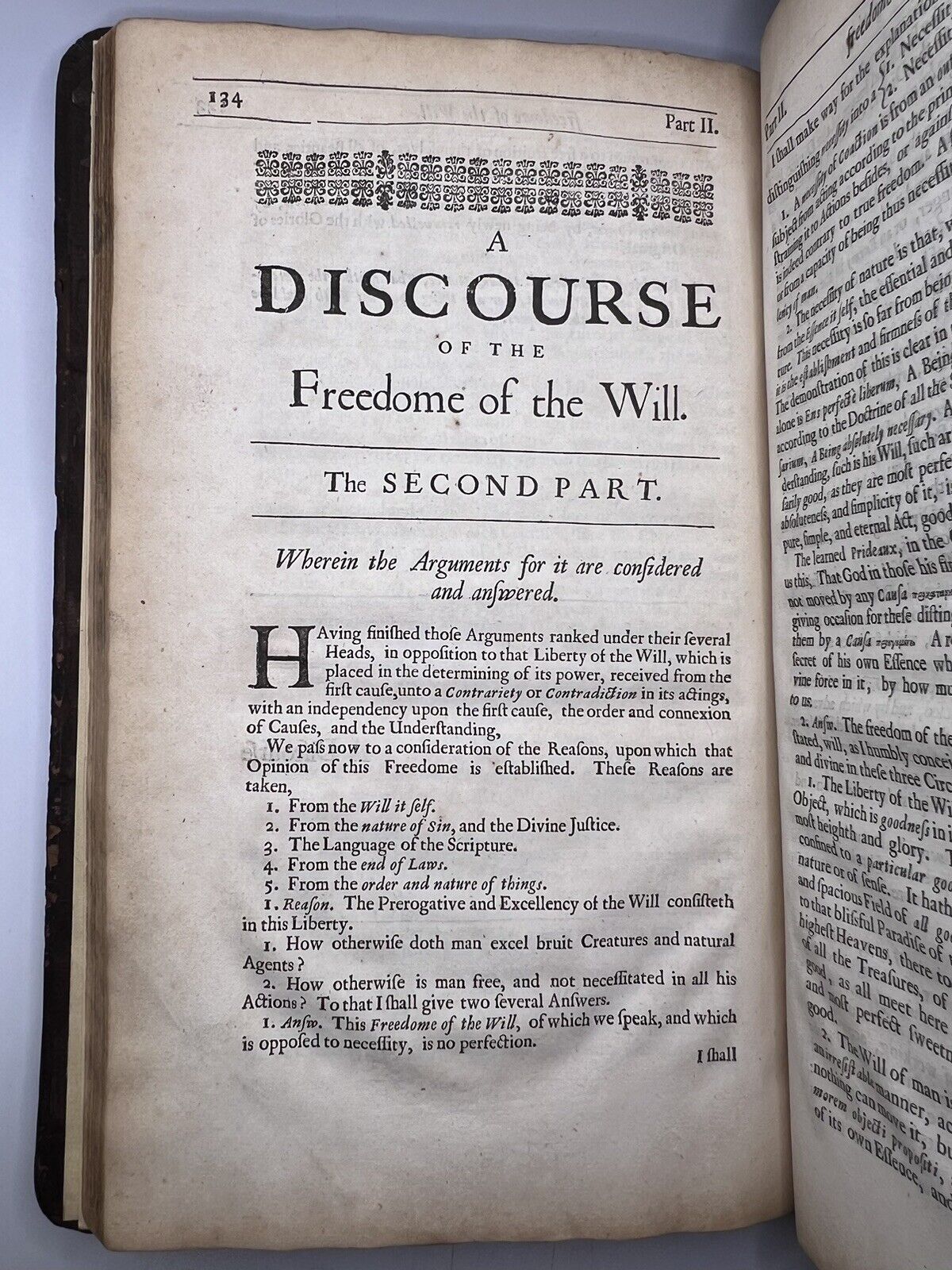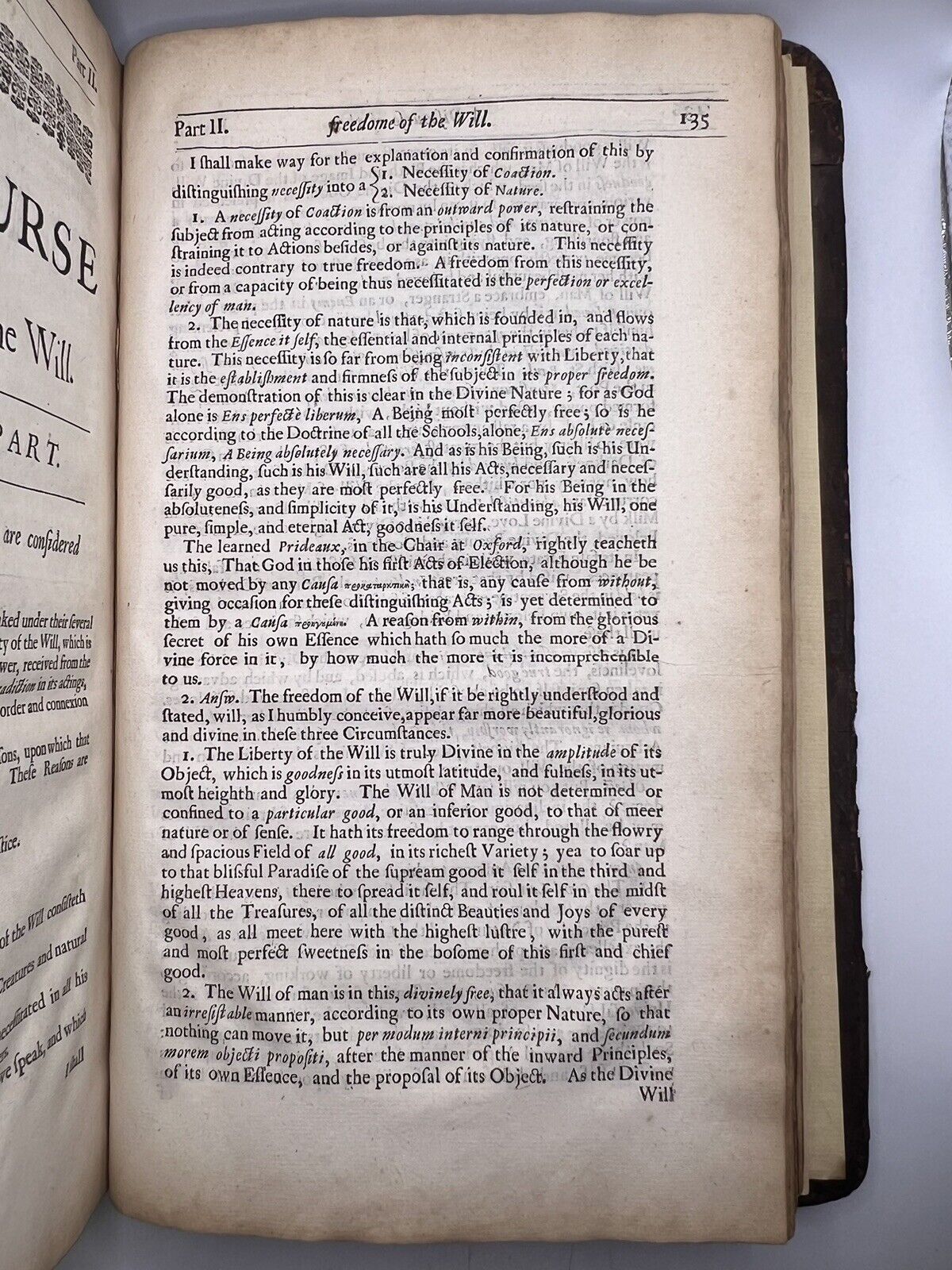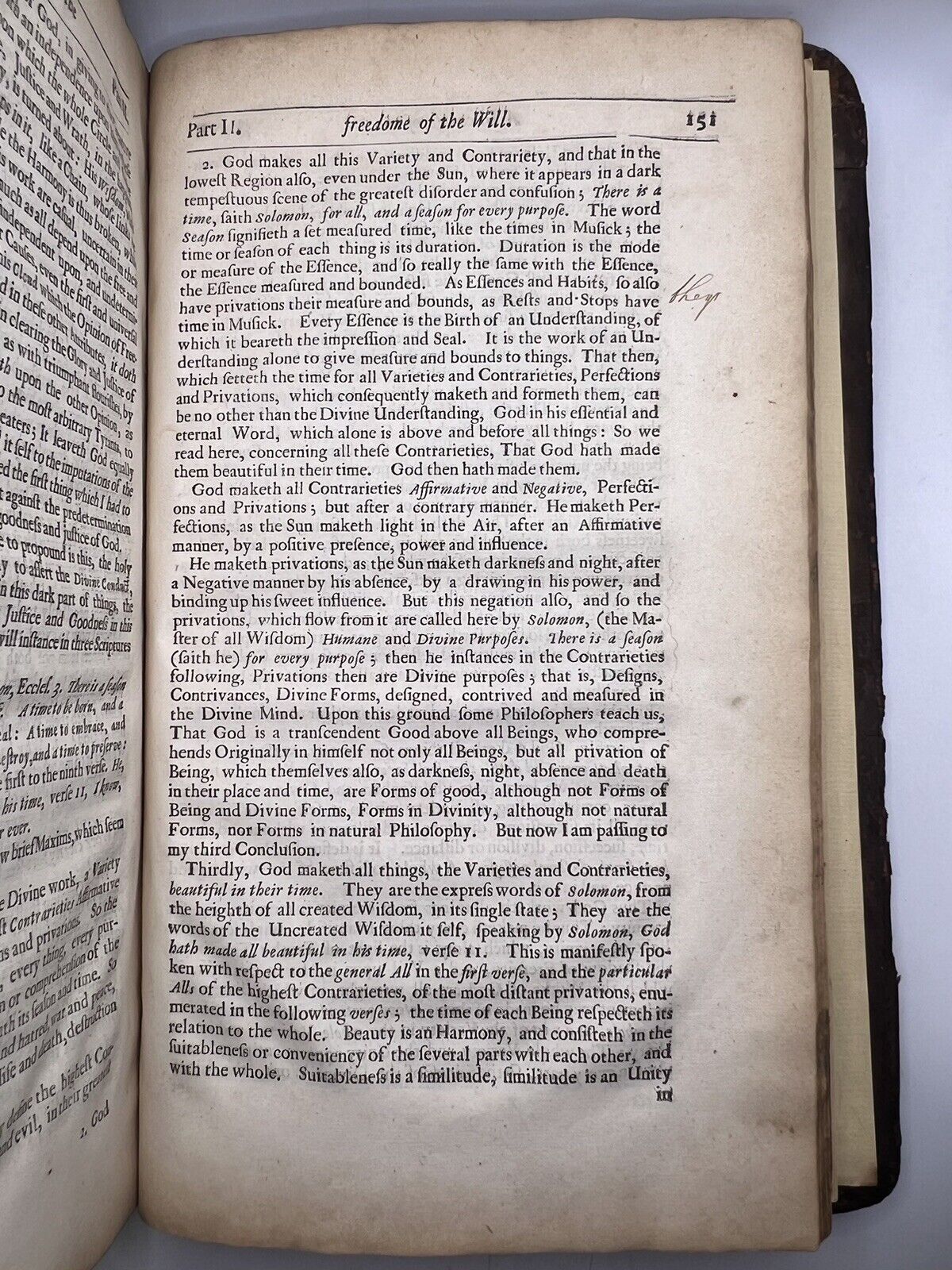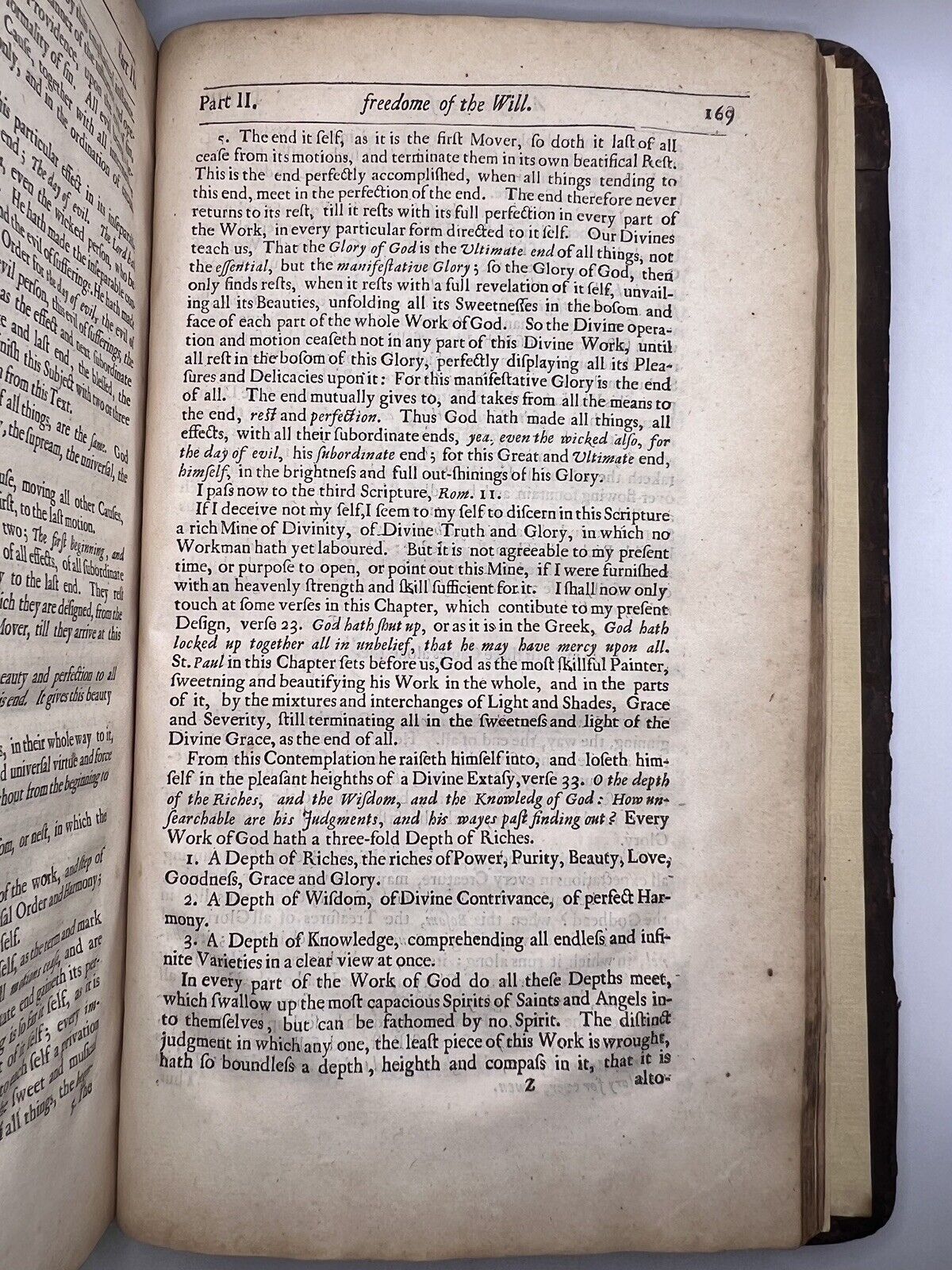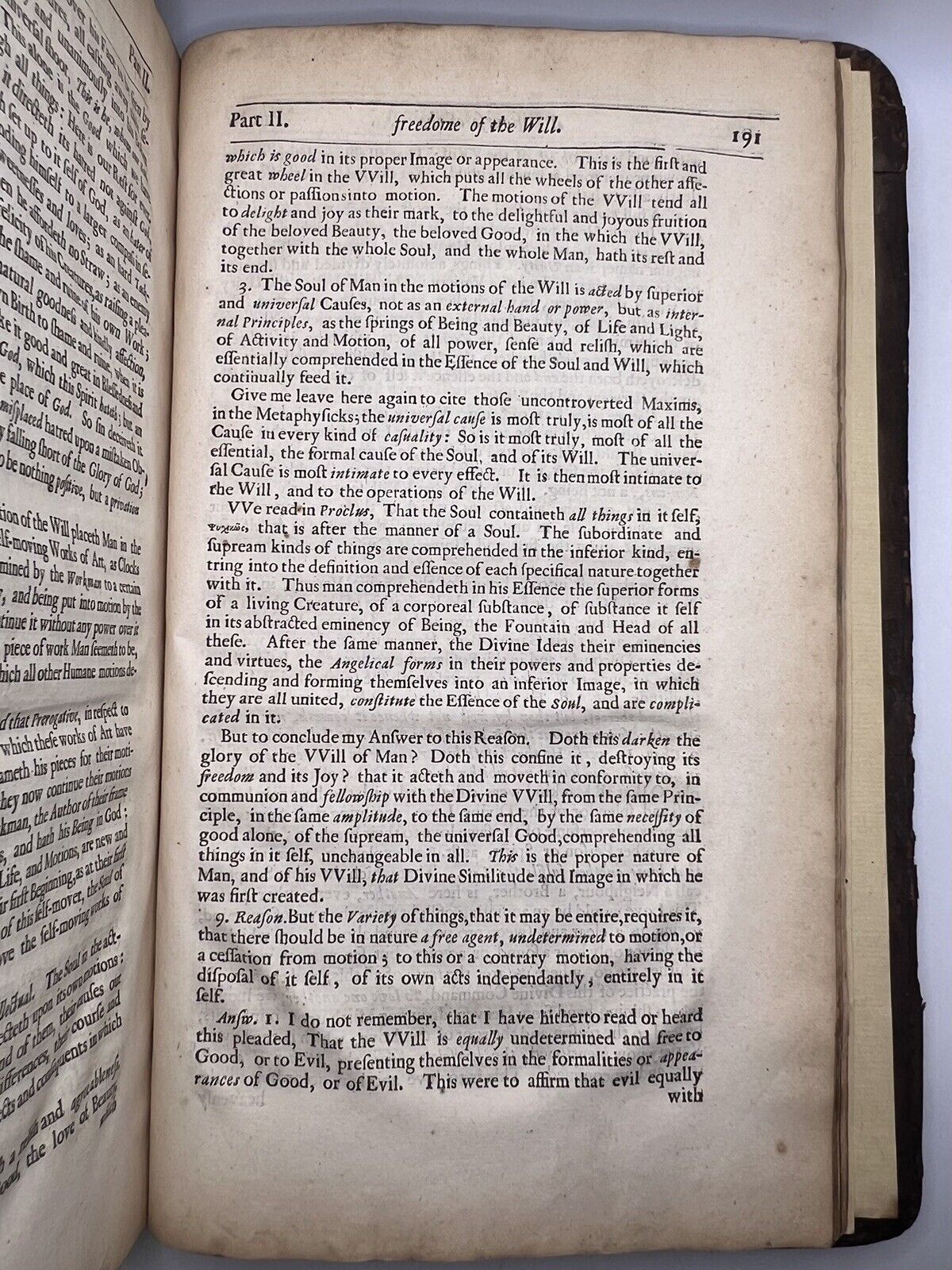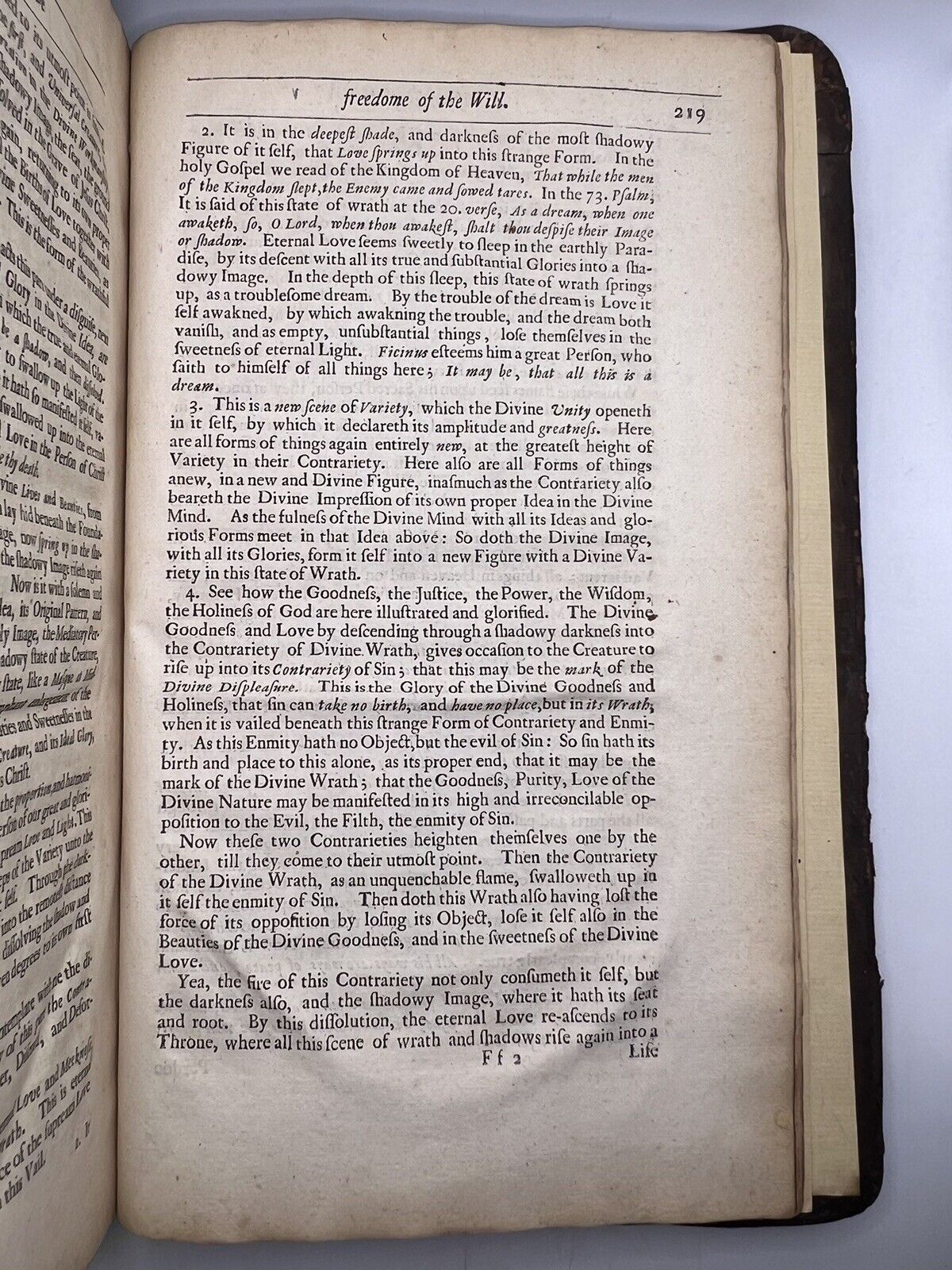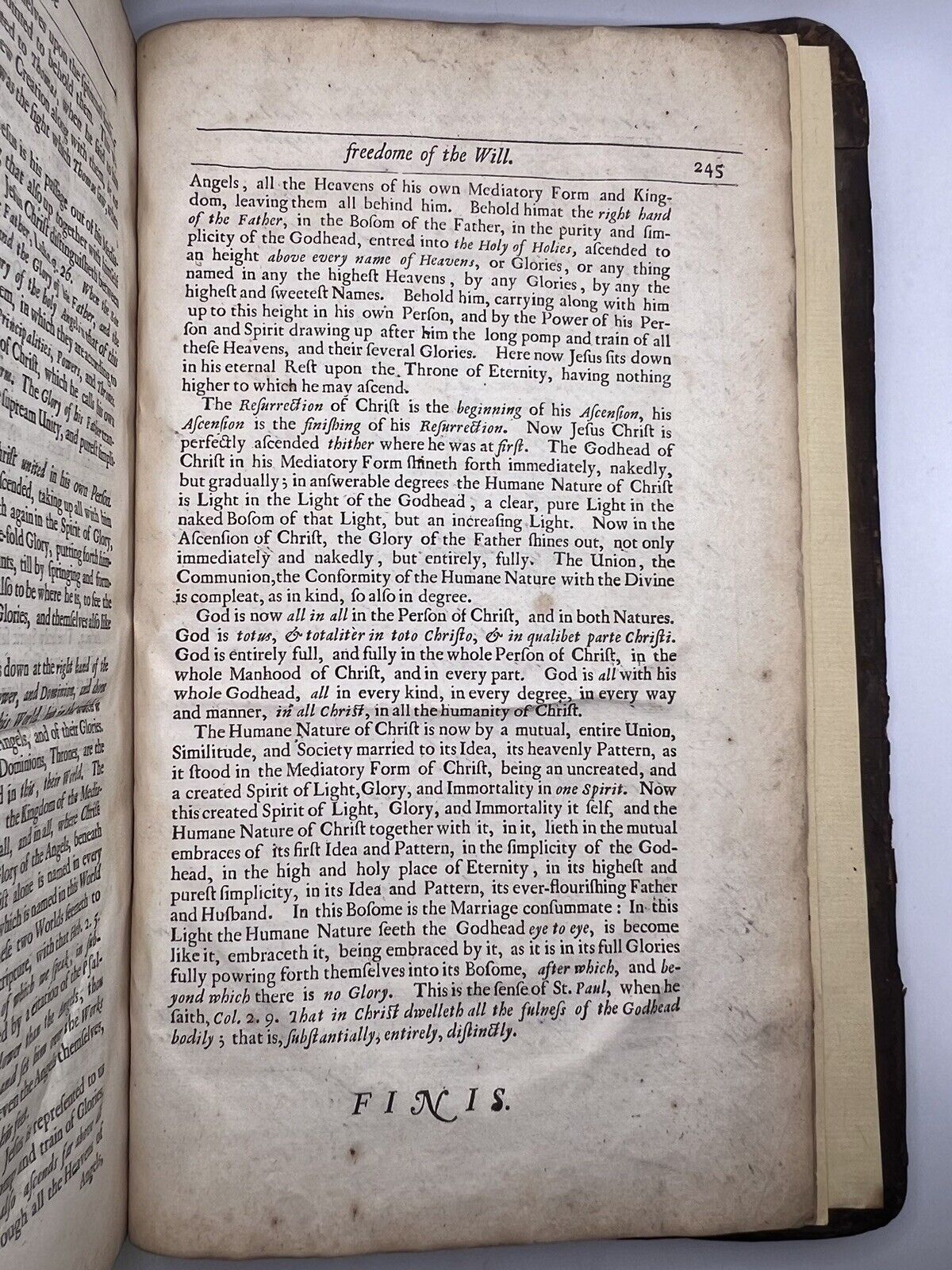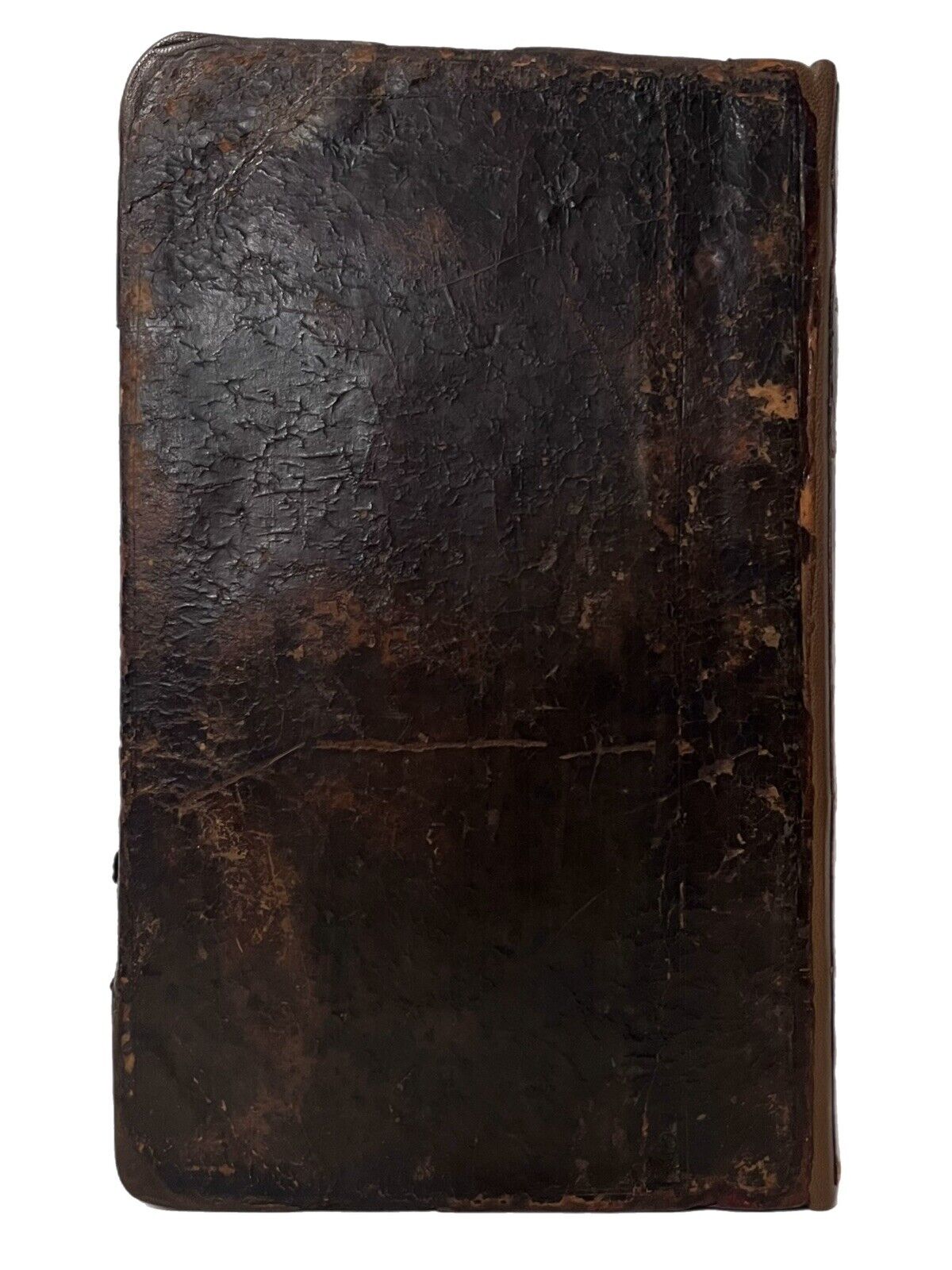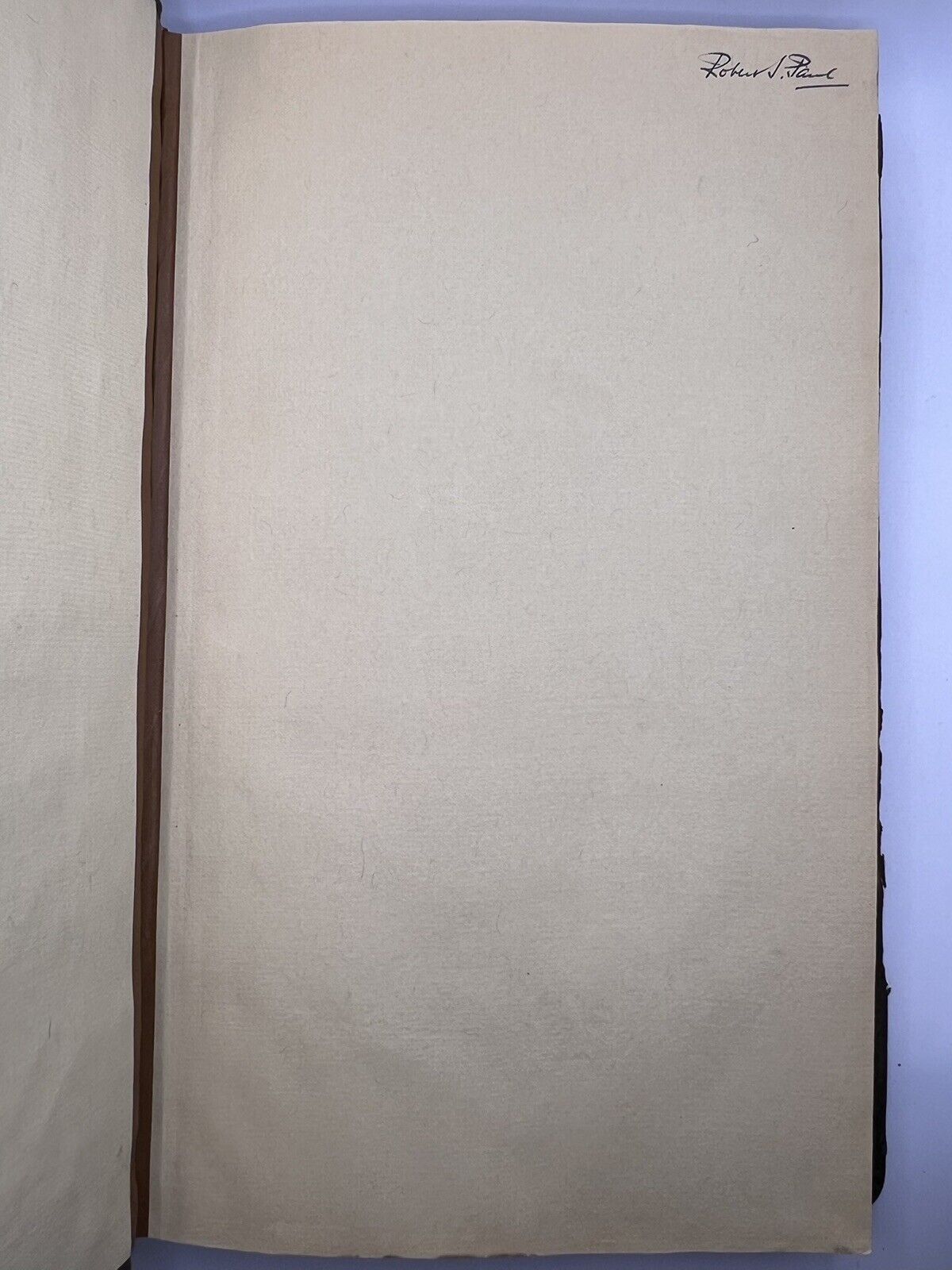A Discourse on the Freedom of the Will by Peter Sterry 1675 First Edition
A Discourse on the Freedom of the Will by Peter Sterry 1675 First Edition
Couldn't load pickup availability
A Discourse of the Freedom of the Will. By Peter Sterry, Sometimes Fellow of Emmanuel Colledge in Cambridge. London: John Starkey, 1675, folio.
THE EXTREMELY RARE FIRST EDITION OF ONE OF THE MOST IMPORTANT WORKS FROM THE CAMBRIDGE PLATONISTS.
-------------------
Peter Sterry was a Puritan spiritual writer and Calvinist theologian educated at Cambridge and associated with the Cambridge Platonists, being one of the most important 17th century English theologians. It is said that he was one of the first, potentially the first, to introduce Platonism into the University of Cambridge. His works in print are notoriously extremely rare. A radical Independent, he preached before Parliament in the 1640s, advised Oliver Cromwell in the 1650s, and after the Restoration retreated to the estate of Viscount Lisle, where he instructed a circle of disciples. He brought to fruition mystical elements in earlier Puritan spirituality and shaped his mysticism under the influence of Renaissance Neo-Platonism, Jewish Kabbalism, and Jacob Boehme. He wrote complex, ecstatic prose and drew erotic imagery from the Song of Solomon. His mysticism was rooted in Calvinist teaching about the soul's union with Christ.
"[Sterry's] A Discourse of the Freedom of the Will (1675) is the most visionary of all the writings of the Cambridge Platonists. But Sterry was more involved with events outside Cambridge than most of the others, on account of the fact that he was chaplain first to Lord Brooke and then to Oliver Cromwell. After the death of Cromwell he retired to a Christian community in East Sheen. In his Discourse, Sterry argues that freedom consists in acting in accordance with ones nature, appropriately to one’s level of being, be it plant, animal or intellectual entity. Human liberty is grounded in the divine essence and entails liberty of the understanding and of the will."
(From the Stanford Encyclopedia of Philosophy)
Immediately after the execution of the king and widespread adoption of Puritan theology & philosophy in British society, Sterry was voted to be the preacher to the council of state (16 Feb. 1649). His duties included preaching on Sundays before Cromwell either at Whitehall or Hampton Court, and frequently before the lords and commons, and so his theology became influential, even if his name is not as well known as other Cambridge Platonists like Henry More. Very interestingly, especially given the majority modern view of Puritans, unlike the majority of the Puritans, Sterry was completely open to the influences of poetry, music, and art, and speaks with admiration of the works of Virgil, Titian, and Van Dyck. This can be seen in page 28 of this book.
-------------------
This book is incredibly rare. This is the only copy we can trace having ever appeared for sale, and we can trace less than 15 copies held institutionally worldwide. It is no exaggeration to state that this is the only opportunity one is ever likely to have to acquire this very important work of Calvinist and Puritan theology.
-------------------
Size: 190 x 310 mm (approx.)
Condition:
[(1), t.p., 2pp, a1-d4, B1-G2, G4-Z4, 2A1-2I4, (1)]
Contemporary full calf, a typical English binding of the period, rubbed, but attractive and stable. The binding has been rebacked, but finely so, with hinges reinforced; the binding is fully useable and is not overly tight. The rebacking work is of very fine quality. Some very neat contemporary correction of some misprints, for example at the foot of D1, line 9 of D4, etc, certainly not in the hand of Sterry, as this work was published posthumously. Lacks original blanks and one leaf, G3, else collates as complete. Edge repair to 2E2 losing a bit of the text at the margin. Large manuscript poem to blank verso of 2I3 dated and signed 1734 at Magdalen College, University of Oxford. A transcription of this poem is tipped in to the rear of the book. The errata leaf (2I4) is present. The title page has some edge restorations as do a few leaves, but none lose any text aside from 2E2 as mentioned. Leaf d4 is a blank. Ownership inscription at head of first blank and to the head of a1, the latter reads "Samuel Milbourn Ejus Liber 1727". Else, through the text block, it is generally very clean and very well preserved indeed, fully legible through the text aside from 2E2 and the one missing textual leaf in the collation. A lovely copy of an extremely rare important work.
[ESTC R15154; Wing S5477; OCLC 217170727].
